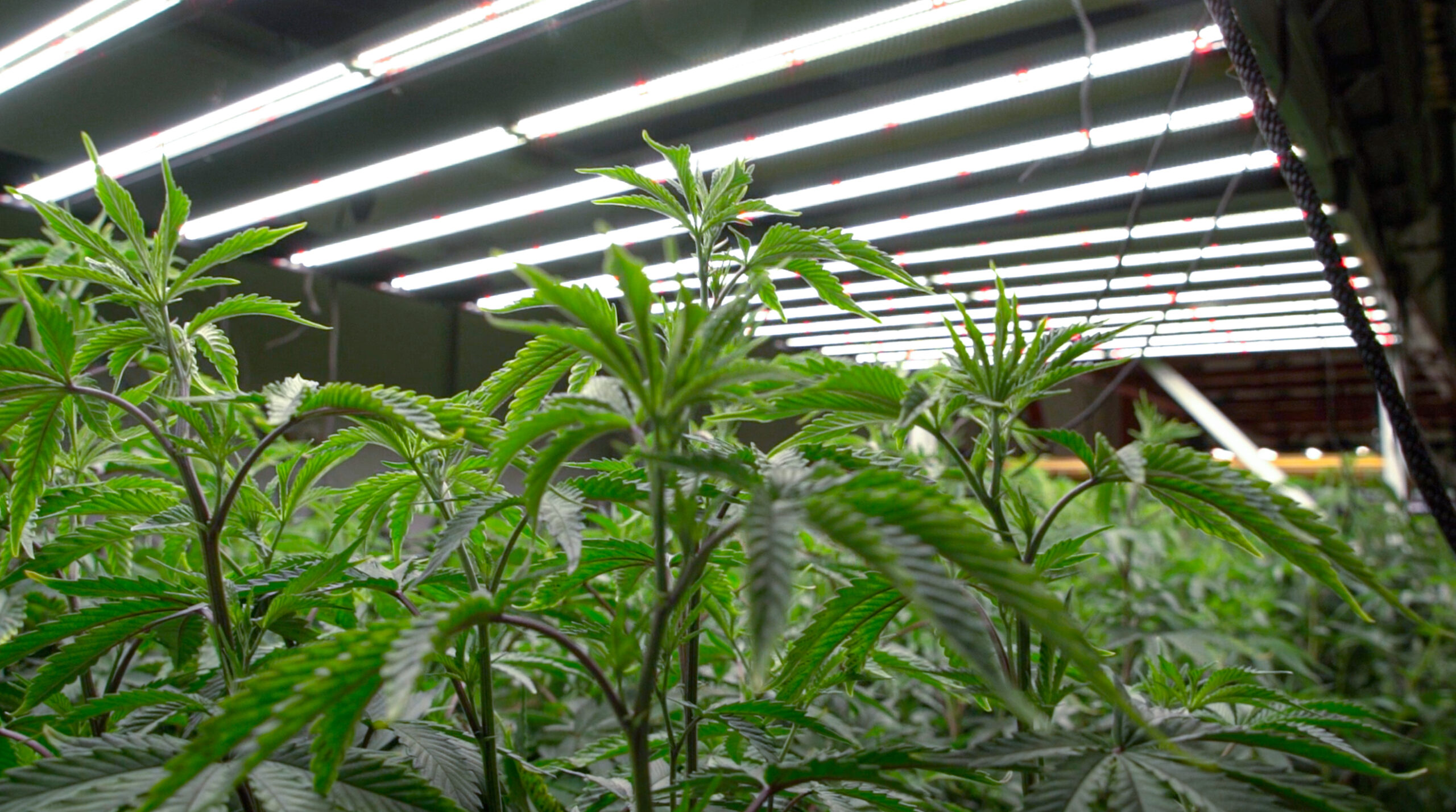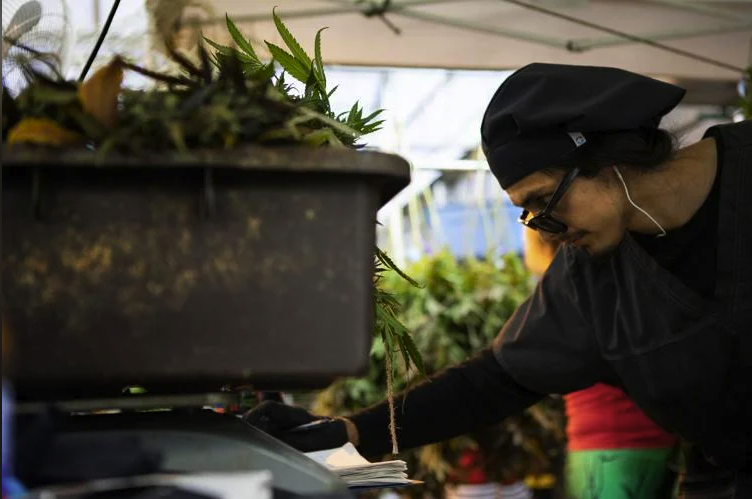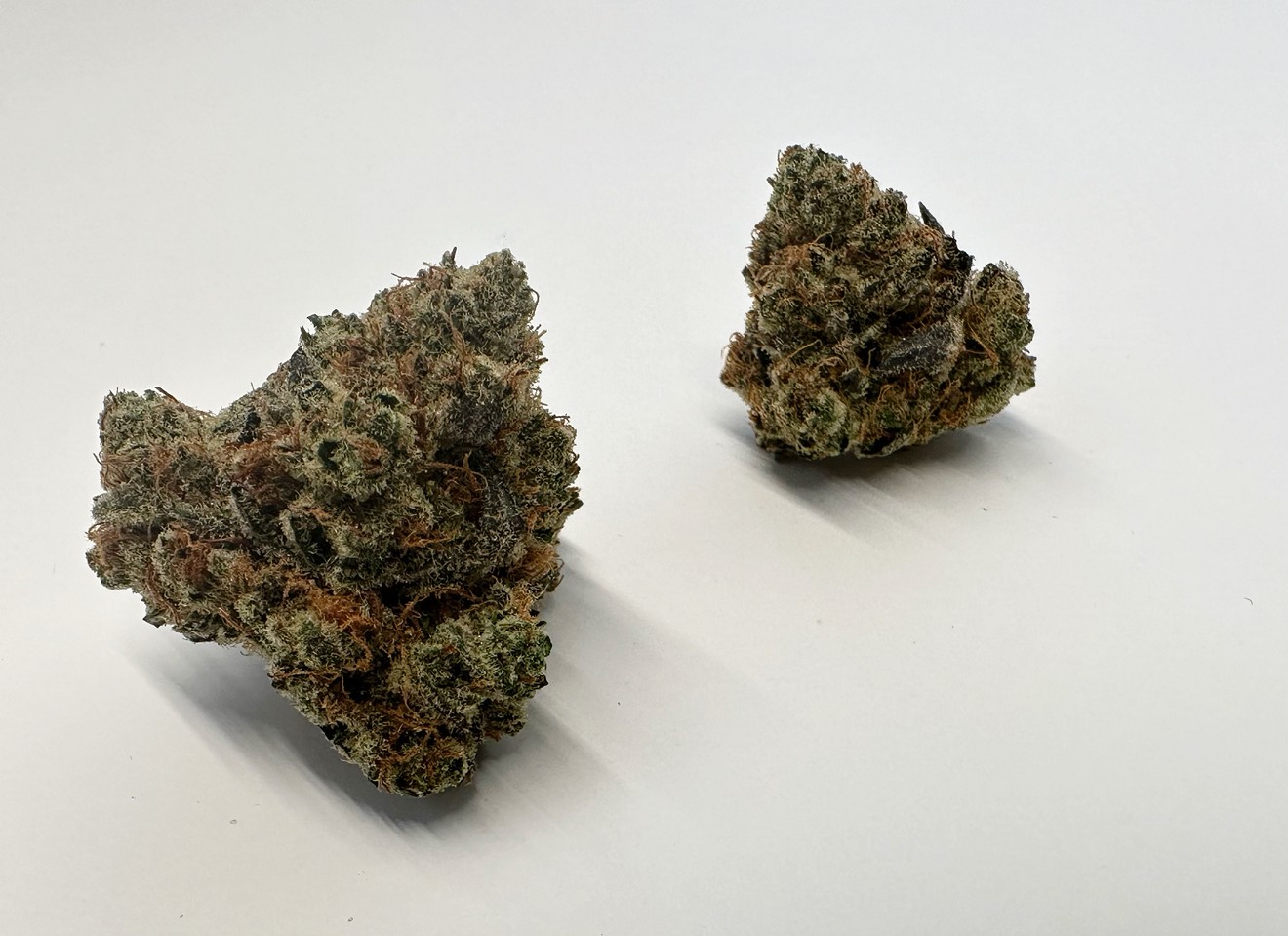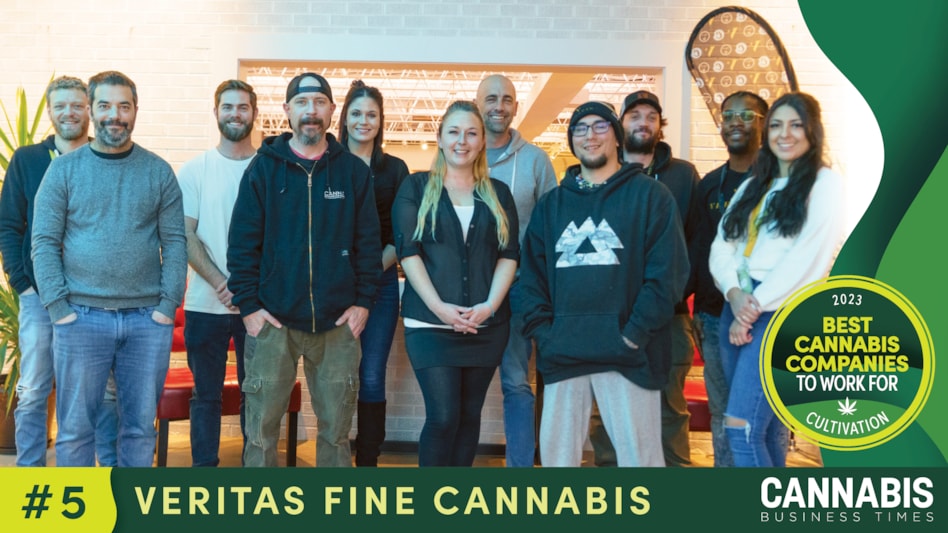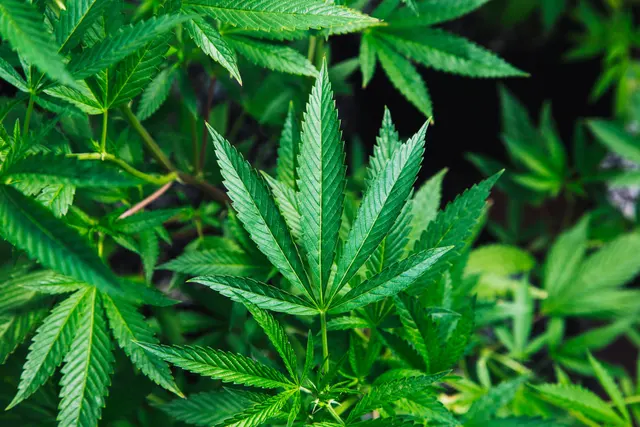Category: Press
Westword Readers Have Spoken: Here Are the Best of Denver 2023 Readers’ Choice Winners

We received 120,731 votes in 153 categories from the good people of metro Denver, and here are the readers’ picks for Best of Denver 2023! Thank you to everyone who voted.
You can also view all of our Best of Denver editors’ picks online and on newsstands.
ARTS & ENTERTAINMENT
Best Comedy Night
Comedy Works Denver
Best Denver Park
Washington Park
Best Disc Golf Course
Johnny Roberts Disc Golf Course
Best Dog ParkCherry Creek Dog Park
Best Drag Show
Best Film Festival Programming
Best Free Entertainment
Best Immersive Experience
Meow Wolf’s Convergence Station
Best Movie Theater –– Art House
Best Movie Theater –– First Run
Best Museum for Locals
Wings Over the Rockies Air & Space Museum
Best Museum for Tourists
Wings Over the Rockies Air & Space Museum
Best Museum Shop
Wings Over the Rockies Air & Space Museum
Best New Art Space/Gallery
Best New Mural
Best New Public Art
Best Place to People-Watch
Cheesman Park
Best Place to Play Pickleball
Best Theater Company Programming
Denver Center for the Performing Arts
CANNABIS & MORE
Best Bargains at a Dispensary
Best Cannabis Instagram
Best CBD Pet ProductSweet Mary Jane Creature Comfort
Best CBD ProductSweet Mary Jane Popcorn
Best CBN, CBG or THCV ProductWyld CBG Pear Gummies
Best Customer Service at a DispensaryKind Castle
Best Dispensary for a Connoisseur
Best Dispensary for a New Cannabis UserThe Joint by Cannabis
Best Dispensary for Classic Strains
Best Dispensary Waiting Room
Best Edibles Company
Best Flower Brand
Best Head Shop
Best In-House Flower at a Dispensary
Best Infused Beverage
Best Medical-Only Dispensary
Best New Colorado Strain
Veritas Fine Cannabis, Pineapple Blast
Best Non-Candy Edible
Best Old-School Hash
Best Rosin
Best Rosin Edible
Best Seed Company
Best Selection at a Dispensary
Best Vape Cartridge
FOOD & DRINK
Best Bakery
Best Bar for Playing Games
Best Bar for Watching Games
Best Bar/Restaurant for a Breakup
Best Bar/Restaurant for a First Date
Best Barbecue Restaurant
Best Breakfast
Best Breakfast Burrito
Best Brunch
Best Central/South American Restaurant (not Mexican)
Best Chicken Sandwich
Best Chicken Wings
Best Chinese Restaurant
Best Cidery
Best Colorado Distillery
Best Diner
Best Distillery Taproom
Best Dive Bar
Best Doughnuts
Best Dumplings
Best Ethiopian Restaurant
Best Food Hall
Best Food Truck/Cart
Best French Fries
Best French Restaurant
Best Fried Chicken
Best German/Eastern European Restaurant
Best Green Chile
Best Hamburger
Best Happy Hour
Best Hotel Restaurant
Best House Margarita
Best Ice Cream/Gelato Shop
Best Indian Restaurant
Best Italian Restaurant
Best Japanese Restaurant
Best Korean Restaurant
Best Mediterranean Restaurant
Best New Bar
Best New Brewery Taproom
Best New Coffeehouse
Best New Restaurant
Best Old-School Italian Restaurant
Best Oysters
Best Patio for Pets
Best Patio With a View
Best Pho
Best Pizza by the Slice
Best Pizza in a Non-Pizzeria
Best Pizzeria
Best Poke
Best Ramen
Best Restaurant Patio
Best Sandwich Shop
Best Seafood Restaurant
Best Southern/Soul Restaurant
Best Sports Bar
Best Steakhouse
Best Sushi Restaurant
Best Tacos
Best Tamales
Best Thai Restaurant
Best Vegan Restaurant
Just Be Kitchen
Best Wine Bar
MUSIC & VENUES
Best All-Ages Club
Best Bathrooms at a Venue
Best Blues Club
Best Country Venue
Best Dance Club
Best Drink Deals at a Venue
Best EDM Club
Best Food at a Venue
Best Gay/LGBTQ Club
Best Hip-Hop Club
Best Indoor-Outdoor Venue
Best Jazz Club
Best Karaoke Bar
Best Latin Club
Best New Album
Best New Band
Best New Club
Best Open-Mic Night
Best Radio DJ
Best Radio Station for Music
Best Rock Club
Best Sound System
SHOPPING & SERVICES
Best Bookstore –– New Books
Best Bookstore –– Used Books
Best Comic Book Store
Best Free Service
Best Gardening Supply Store
Best Liquor Store
Best Local Influencer
Best Local Instagram
Best Local Podcast –– Entertainment
Best Local Podcast –– News
Best Local TikTok
Best Place to Buy Flowers
Best Plant Store
Best Record Store
Best Store at Denver International Airport
Best Store in Cherry Creek
Best Store in RiNo
Best Store on Broadway
Best Store on East Colfax
Best Store on the 16th Street Mall
Best Store on the Pearl Street Mall
Best Store on West Colfax
Best Talk-Show Host
Best Thrift Store
Best Vintage StoreStrawberry Mountain
PROFILES IN LIGHTING | Libra Design
March 16, 2023
Libra Design custom engineers science-backed LED lighting for controlled environment agriculture with reduced equipment expense.

View Image Gallery
EDITED BY CARRIE MEADOWS
Two years ago, Travis Williams and Dung Duong combined their experience and skillsets in semiconductors, LEDs, and solid-state lighting technology development to found Libra Design in Austin, Texas. The colleagues first met at BML Horticulture, which eventually became Fluence Bioengineering. (Fluence has since been acquired by lighting manufacturer Signify.)
The premise for Libra Design grew over their time with BML and Fluence: Develop a firm dedicated to crafting lighting for controlled environment agriculture (CEA) that could leverage the benefits of LEDs while driving down barriers to SSL adoption in the sector.
Along with a bachelor of science in communications from the University of Texas at Austin, Williams brings a 15-year career in the semiconductor industry to the venture. Before entering the horticulture lighting industry, Williams led the introduction of new products, business units, and ecosystem partnerships at AMD.
Duong holds more than 40 patents in the LED industry, including specialty optics and heatsinks. Prior to Libra Design, he was the founder and chief science officer of Illumitex and co-founder of BML Horticulture. Duong has dual bachelor of science degrees in optics engineering and electrical engineering from the Rose-Hulman Institute of Technology, in Indiana.
Libra CTO Duong and CEO Williams lead a lean operation from their Virginia and Vermont offices, respectively.
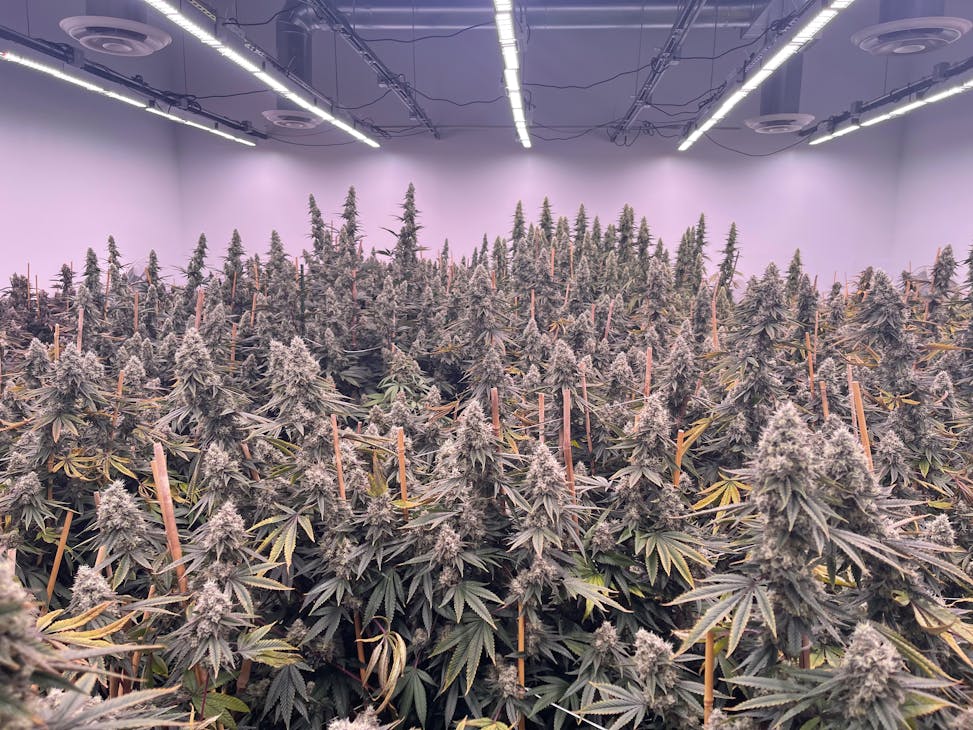
Firm mission: Our mission is to address global food insecurity and the climate crisis by removing the financial and technological barriers to horticulture lighting systems for CEA. It offers tremendous benefits compared to conventional agriculture yet remains a niche player in the global food system, primarily due to the extensive capital and operating costs — which we aim to remove.
What we are known for: Customized horticulture lighting solutions for indoor and greenhouse farms that are high performance and high quality without the high price tag.
First commission: While our primary focus is accelerating CEA food production, we are extremely passionate about working with the commercial cannabis industry to increase efficiencies and reduce its carbon footprint.
Last summer, we worked on a lighting retrofit project for Veritas Fine Cannabis, one of Colorado’s largest cannabis cultivation brands based in Denver. Like most cannabis producers in Colorado, Veritas was facing macroeconomic pressures to increase operational efficiencies as statewide supply outweighed demand. To help Veritas reduce opex and increase production, we worked with its management and cultivation team to develop a lighting solution to replace the existing high-pressure sodium equipment, resulting in a 60% yield increase and 20% reduction in energy use. Not only was this a home run for our client, but a truly rewarding result for Libra as we kickstart our goal of making LED solutions accessible for all crop producers.

Firm culture: Libra Design is a private, self-funded, and mission-based company. These factors drive a culture based on purpose rather than shareholder value, investor returns, or other financial-based metrics (for example, EBITDA), which dominate conventional business and influence both short- and long-term decision making. We believe this foundation materializes in better solutions for our clients and relationships with our partners, and a culture with personal and professional fulfillment at the forefront.
Favorite lighting/engineering rule of thumb, standard, or equation: Conservation of radiance [Φ/(n2AΩ)=Φ1/(n12A1Ω1)]. The radiance through a lossless optical system is constant, yet, like perpetual motion, everyone tries to “cheat” it and ultimately gets proven wrong. While simple, its underlying principles define the aperture of a lighting system, regardless of the complexity of the optical system, defining the exit aperture to control a beam at 100% efficient. This equation has proved so profound throughout Duong’s career that he named his son Radiant.
Industry generalization or perception that should be debunked: We continue to see a disproportionate amount of attention and capital spent on spectra for commercial horticulture lighting systems. Our experience continues to demonstrate spectrum is less important to overall crop and business success than other factors — PPFD, efficacy, and capex/opex. While spectrum plays a vital role in the development of crops, we believe the focus needs to shift to a balanced approach with intensity, energy efficiency, and sound financials in the foreground.
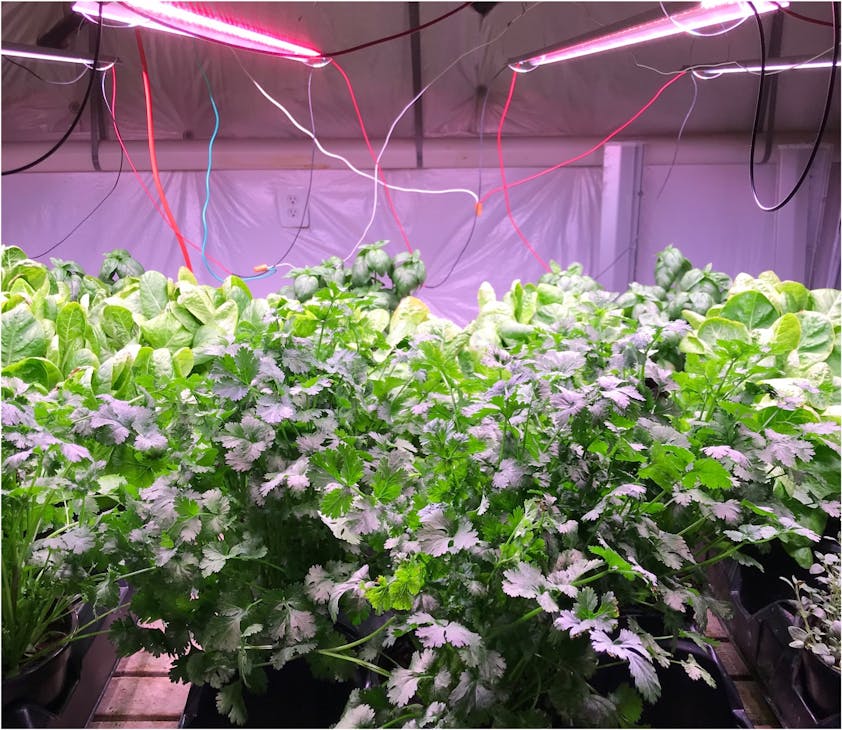
Top industry concern today: The short-term viability of vertical farming remains a concern as most farms continue to depend on outside investment — not solely for the upfront costs but also to cover operating costs as a substitute for profitability. While we are encouraged by some farms turning their attention to sound operations, many still have unnecessarily high capex/opex from equipment and product features that do not substantially affect the bottom line. Although some of the large costs are inevitable, we hope to provide solutions that allow growers to achieve profitability.
Technology, product, or designer you admire: On-site power generation with a centralized DC grid to power horticulture LED fixtures. Both the cost and energy efficiency of LED fixtures are starting to reach an asymptote. The next wave of significant cost and energy savings will come from a centralized DC grid system.

What should the industry talk more about? The unsustainable carbon footprint of CEA. LEDs are more energy efficient than incumbent lighting technologies, and CEA facilities offer tremendous upsides compared to conventional agriculture. Still, we must offset the energy used from carbon-based power generation. A typical indoor farm requires anywhere from 14 to more than 70W per square foot for lighting alone, whereas a typical office or retail space requires less than 1W per square foot. Vendors, designers, policy makers, and crop producers must work together to address this issue. For our part, Libra maintains a minimum 2.7 µmol/J efficacy design principle and is also a member of 1% for the Planet, so proceeds from every order go to planting a tree.
Advice to anyone interested in developing CEA lighting or entering the industry: Focus on the core metrics with a constant evaluation of the market needs. Like every business, it’s about providing enough value to ensure scalable growth. Both CEA technology and the industry are evolving rapidly. What worked last year may not work this year.
What vending machines say about Colorado’s cannabis industry
It’s more about innovation than automation


Jonathan Rose, 19 hr ago
Welcome to the first edition of Regulated State — a newsletter hyperfocused on Colorado’s cannabis industry and its burgeoning psychedelics sector.
NOTE: Please do read past the lead story for an important update on medical cannabis legislation currently being debated at the Legislature.
I’m Jonathan Rose, the editor who built the cannabis beat at the Denver Business Journal, and I’m excited to publish this biweekly newsletter that looks beyond the Denver metro and across the Centennial State (you know, the one that did it first).
As I did my due diligence over the past months, gauging the appetite for a newsletter like this, the No. 1 question that came up was “Who is your audience?”
Well I can’t say for sure — the response to the first few newsletters should give me an indication. But let me make this clear: I want EVERYBODY.
I think there are stories happening in cannabis every day with mainstream crossover appeal — I proved it at the DBJ, and I hope to do it again here.
Oh! And feel free to send me any story ideas, pitches, tips, etc. jonathan@regulatedstate.com or through Substack.
Thank you for reading/subscribing (and please forward to your friends).
-Jonathan
Like what you see? Were you forwarded this email? Subscribe below to catch the next one!Subscribe
What Terrapin’s new vending machine says about the Colo. Cannabis Industry
When Terrapin Care Station recently unveiled what it calls the “first-of-its-kind cannabis digital vending kiosk” at its Aurora location, even Gov. Jared Polis tweeted about it.
This dispensary in Aurora is the first Cannabis vending machine and the first fully automated cannabis kiosk on the market. You still need proof of ID and age to be granted entry. dpo.st/40M1UYE
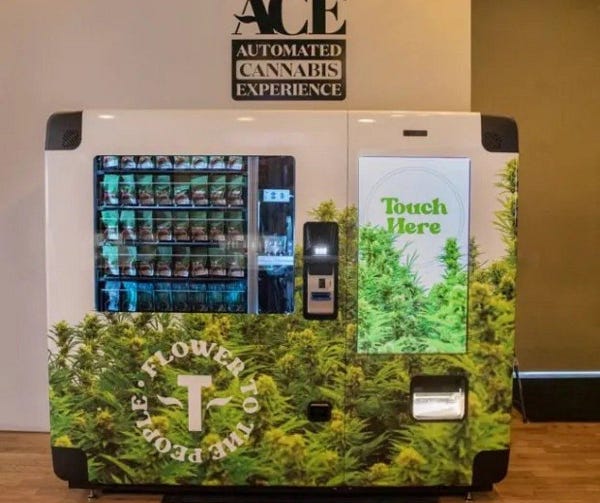
The technology behind ACE (Automated Cannabis Experience), built with 50-year vending-machine vets BMC Universal Technologies, is the result of five years of development. It scans IDs; it accepts payments; and it labels and dispenses cannabis products, all in plain view. And it can hold up to 1,152 products, according to Terrapin Care Station.
But it also tells a bigger story about a Colorado cannabis industry that is slogging through probably the most challenging moment in its young life.
The big picture: The cannabis industry has entered a new reality, and nobody’s quite sure exactly what to make of it: Rock-bottom wholesale prices and dropping retail sales after a pandemic boom have left cannabis companies scrambling. Multistate operators are reducing their footprint nationwide, VC has dried up, headlines are apocalyptic.
Have the reports of weed’s death been greatly exaggerated? What local cannabis companies and analysts are telling me, though, is that this is simply an inevitable market correction — and one that was likely on its way no matter what.
Case Studies: While MSOs and VC-backed startups are laying workers off by the hundreds, Colorado retailers — and even some cultivators — are using this opportunity to innovate, and some are even expanding.
Terrapin Care Station: The Boulder-based, six-store chain recently pulled out of Michigan due to what it sees as “a serious turn,” in that state’s industry. Some 70% of Michiganders were still buying their weed on the black market as recently as late 2021, according to one study.
Terrapin employs 130 workers in Pennsylvania where it’s a cultivator, and is the only producer found on every Pennsylvania dispensary shelf, Vice President of Communications Peter Marcus told me. And it’s looking to expand with two more stores right here in its home state.
The ACE vending machine isn’t a way to cut employee headcount, Marcus said. There have been no budtender staff cuts, he said; rather, ACE is just one more way to attract customers to its stores.
It’s also a potential future money-maker, since it’s a Terrapin-developed machine that can be sold or licensed out.
And data — the currency of the new millennium — will be one way the vending machine is helping the chain adapt to these challenging times.
“We’ll learn from the type of customer who uses it,” Marcus said, pointing to sales, frequency, what type of person wants to get in and out of the shop with minimal interaction.
Native Roots: “We’ve become very good at forecasting,” Native Roots Chief Sales Officer Denise De Nardi told me.
The 20-store, Colorado-headquartered cannabis behemoth onboarded a new enterprise resource planning software system and brought on a small group of consultants to help build what De Nardi calls “the foundation” of Native Roots’ new approach.
They’ve since boosted the percentage of customers under the age of 30 by 10 points (from 28% to 38%). They’re developing new products and brands for other customer segments, and ensuring their store inventory meets neighborhood demand.
And they’re doubling down on “experiential retail,” experimenting themselves with different forms of education and technology.
“It would’ve hurt us if we would’ve just continued to produce and push to the stores at the same level,” De Nardi said. “We’re really aligning product to customer demand.”
Native Roots is also looking at adding more stores to its Colorado footprint.
Veritas Fine Cannabis: Cultivators are arguably getting hit the hardest by this downturn, but that’s not stopping high-end grower Veritas Fine Cannabis from innovating.
“It’s forcing us to be a much better company and a much better brand,” Veritas President Jon Spadafora told me. “We’ve really stripped it down to the things we know will generate traffic.”
Veritas, known for its sponsorships and partnerships, has had to cut back on those types of promotions. Instead, it’s talking to retailers to figure out what draws the types of customers who will buy high-end cannabis.
It’s doubling down on its fourth annual ski giveaway partnership with Golden-based Icelantic. Customers who purchase Veritas cannabis receive a code they can enter for a chance to win a pair of Icelantic skis or a snowboard each Friday. The companies are giving away both.
It’s not only drawing consumers to cannabis retailers and upselling products, but it’s providing invaluable data about Veritas’ core customer, and how they can be better reached. It’s also strengthening Veritas’ relationship with retail stores, according to the company.
“If anything coming out of this crappy market, it’s deepening our relationships with the stores we do the most business with,” Spadafora said. “I think at the end of the day that’s a positive thing.”
The manufacturer’s take: “I think innovation on the product side is important so we’re attracting new consumers and not just fighting the race to the bottom from a price perspective,” Wana Brands Chief Marketing Officer Joe Hodas told me.
The analysis: “Colorado is undergoing a very difficult market transition as cultivators — and manufacturers to a lesser degree — react to what is oversupply in the wholesale market and rapidly declining prices that has resulted in a decline in the number of active adult-use cultivation licenses,” Vicente Sederberg Director of Economics and Research Andrew Livingston told me.
He pointed to the fact that the number of retail licenses had increased in 2022 while the number of cultivation licenses dropped slightly. And any number of those licenses could be inactive and/or up for sale.
Colorado went through something similar from 2018-2020, Livingston said. “But that didn’t occur when we were potentially facing a global recession, inflation and a significant capital crunch.”
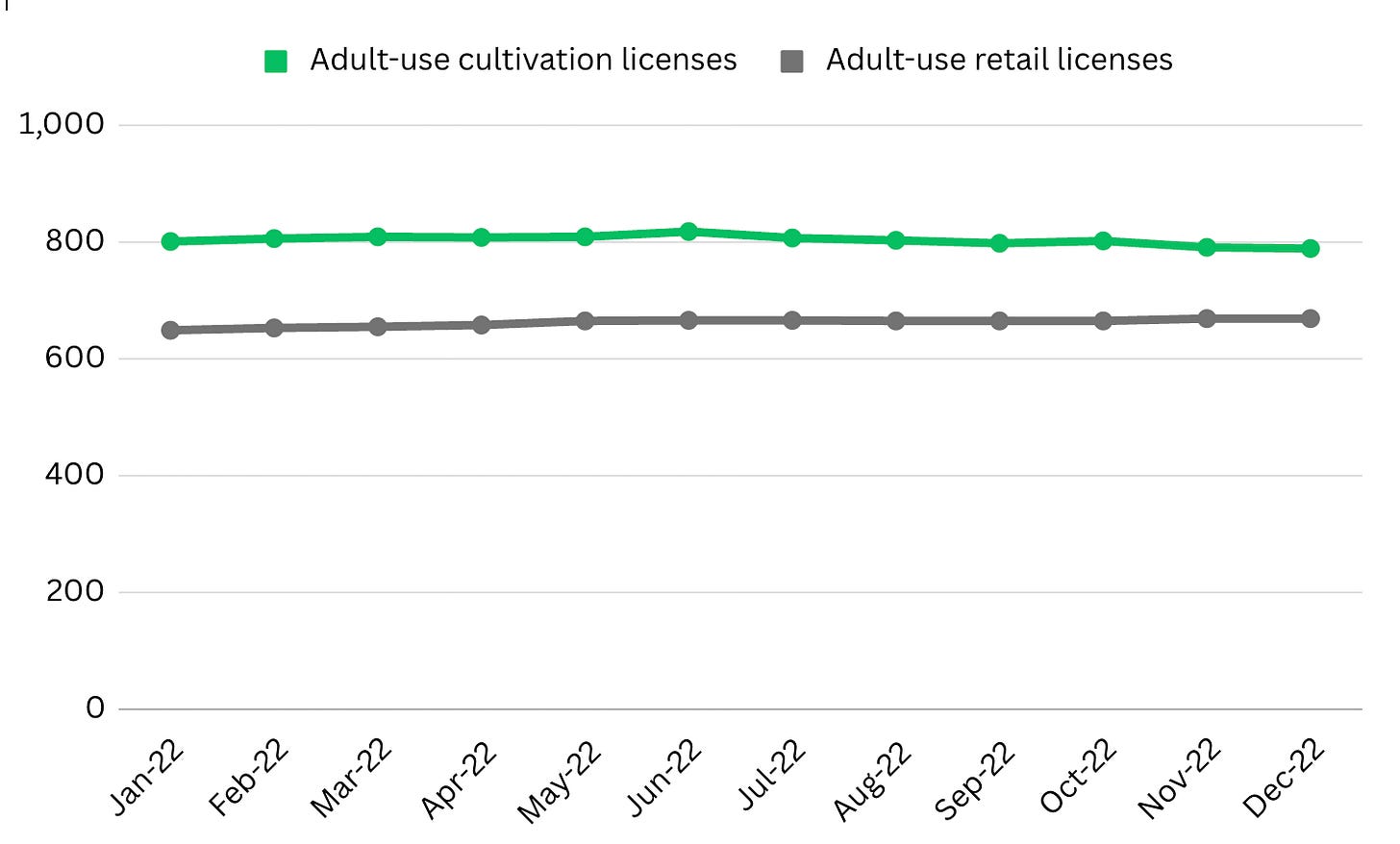
*MED data provided by Vicente Sederberg
Truman Bradley, executive director at Marijuana Industry Group, said he sees some of the larger companies experimenting with returning to a vertical-integration model and expects various levels of success.
“I think a lot of directors of retail or general managers are having a come-to-Jesus moment about who are they, who are their customers and what do their customers want,” he told me.
Colorado marijuana sales tank in 2022 after pandemic-induced high
- By SAVANNAH MEHRTENS savannah.mehrtens@denvergazette.com
- Feb 5, 2023 Updated 15 hrs ago
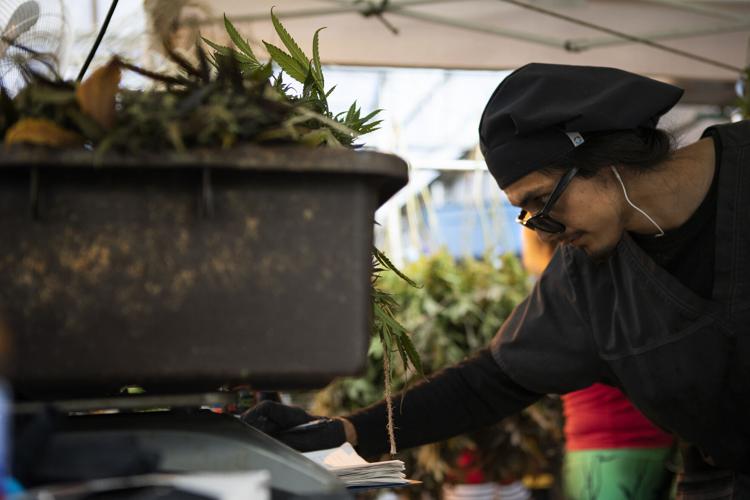
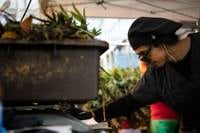
FILE PHOTO: Assistant cultivator Saul Servin writes down the weight of a “Mac” strain marijuana plant while harvesting at the Euflora cannabis greenhouse on Tuesday, March 1, 2022, in Denver, Colo. (Timothy Hurst/The Denver Gazette)
- TIMOTHY HURST/THE DENVER GAZETTE
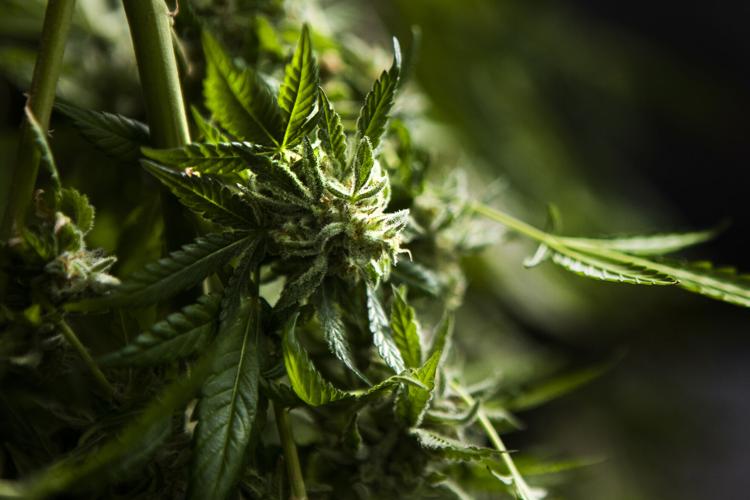

FILE PHOTO: Cannabis industry officials are seeing the other side of the pandemic “bump” in sales. Pictured: Marijuana plants hang upside-down on a rack, ready to be “de-fanned” after being cut down at the Euflora cannabis greenhouse on Tuesday, March 1, 2022, in Denver, Colo. (Timothy Hurst/The Denver Gazette)
- TIMOTHY HURST/THE DENVER GAZETTE
Following a pandemic “high,” Colorado cannabis sales have been plummeting for months.
Sales skyrocketed for the cannabis industry in the beginning of 2022, a trend that began at the onset of the COVID-19 pandemic.
Now, cannabis industry officials are seeing the other side of the pandemic “bump,” according to Ricardo Baca, founder and CEO at Grasslands, a marketing and PR agency that focuses on cannabis and psychedelics.
Baca noted that, during the early months of the pandemic — when authorities imposed quarantines and people shifted to working remotely — people used cannabis recreationally more often.
Experts and industry insiders pointed to several factors contributing to the decline in cannabis sales, including a shift in consumer behavior, more states legally permitting its use and less disposable income as a result of inflationary pressures.
In 2022, the state of Colorado collected $325 million in cannabis tax revenue, a nearly $100 million decline from 2021, which produced $423 million in taxes. In 2020, that number was $387 million.
Actual sales are down even more than that, according to The Marijuana Industry Group executive director Truman Bradley. MIG is the oldest and largest trade association for the regulated cannabis business in Colorado.
“Any time sales drop as low as they’ve dropped, you see businesses closing, you see Colorado workers being laid off,” Bradley said. “And that ripples out not just to the plant-touching companies but to the ancillary companies both direct and indirect.”
Taxes are collected in three categories: state sales tax on marijuana sold in stores (2.9%), the state retail marijuana sales tax on retail marijuana sold in stores (15%), and the state retail marijuana excise tax on wholesale sales or transfers of retail marijuana (15%), according to the Colorado Department of Revenue, which is responsible for tracking data on sales of marijuana throughout the state.
The total amount of taxes collected to date from cannabis sales have reached $2.3 billion, the department said.
Last year, over $675 million of the taxes collected from the cannabis industry went to the Marijuana Tax Cash Fund; the Public School Capital Construction Assistance Fund received nearly $391 million; the Public School Fund got $276.6 million; and, the rest was split between local government ($138.38 million) and the general fund ($135.99 million).
Experts anticipate that, with new markets coming online through state legalization, sales in Colorado will also go down.
New Mexico will likely see more sales not only from customers in their state but also from surrounding states, such as Texas, that would have previously gone to Colorado for their cannabis, said Baca, the PR expert.
“But, inevitably, this is going to level out and we’re going to see a more authentic expression of what this current market looks like in 2023,” Baca said.
Some welcomed the news.
Luke Niforatos, executive vice president of the anti-marijuana group Smart Approaches to Marijuana, said the decline in sales should be “celebrated.”
“Big Marijuana profited off of increased addiction and use throughout COVID-19 lockdowns and the isolation that so many Coloradans felt during those years,” he told The Denver Gazette. “What we are seeing now is likely a return to the pre-pandemic average use. This decrease should be celebrated, but we need to do more to educate the public on the harms of marijuana use and hopefully we will continue to see these numbers decline.”
Cannabis-based businesses are seeing the affects of declining sales beyond the dispensaries and well into production.
When the spike occurred during the pandemic, businesses started producing more to meet the demand and, in many cases, brought on more staff.
With sales down, companies are shedding employees, some for the first time.
For Johnathan Spadafora, president of Veritas Fine Cannabis, said his company had to let go of 34 employees since numbers were not what they expected based on projections.
“Everybody in the cannabis business, or quite a few of us in the cannabis business, had known only expansion for a long time,” Spadafora said. “For more of the time that I’ve done this job, the biggest problem that we faced was how do you create more product as fast as you can.”
The economy, overall, has been adjusting to inflation and rising interest rates, and it’s harder for consumers to make room for discretionary spending, Spadafora said.
“As one of the only products that can’t be purchased with a credit card, we felt that very severely across all of cannabis,” he said.
Alison Di Spaltro, chief executive officer of the cannabis company Escape Artists, believes several factors contributed to the decline in sales.
Other states coming online affected border stores and made it less of a tourism novelty, she said, adding that there is less foot traffic in stores, there were no stimulus checks like there was in 2021 and consumers have less cash on hand due to inflation.
“What I’m hoping is this year, we kind of get to a point where we find what is the steady state [of sales] for Colorado,” Di Spaltro said.
About 41,000 people work in plant-touching cannabis companies, according to Bradley. Add in support and ancillary companies, that number rises to about 100,000 employees in Colorado, according to Bradley.
“I don’t have a crystal ball as to the future, but there are a few things I know definitively: The first is decade No. 2 of legalization in this state needs to look fundamentally different than decade No. 1,” Bradley said. “The cannabis industry is extremely compliant and it can be a good source of revenue for state and local governments, but we need to take a hard look at the regulations that were first put in when no one knew how this was going to go and assess whether that’s actually appropriate or whether it’s time to maybe relax those a little bit.”
Why Colorado Tokers Love Milky Way
HERBERT FUEGO FEBRUARY 1, 2023 5:55AM
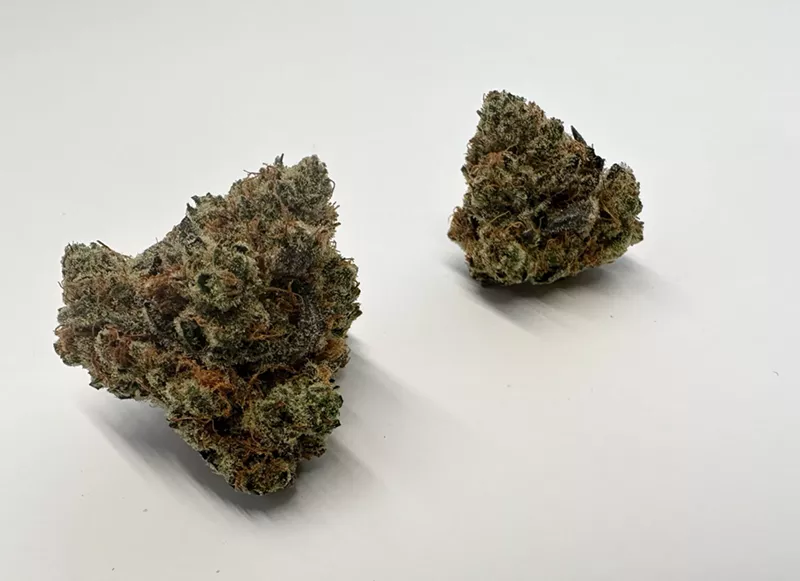
Milky Way won’t take you to new galaxies, but it’ll make you feel good about the one you’re in. Herbert Fuego
Maybe it’s the anti-stoner stereotype movement, or maybe it’s concern about light pollution, but somehow, getting high and looking at the stars is underrated. It shouldn’t be. After all, it allows us to think about those omnipresent questions: Why I am here? What else is out there? Yada yada yada…
Before there were phones, TVs and constant distraction, I’ll bet pot smokers looked at the stars more often. How else could astrologers have seen lions, bears and flying horses from a bunch of dots? They needed a little inspiration. And as chance would have it, a strain called Milky Way is perfect for stargazing.
We’ve seen a couple of suspected versions of Milky Way out there, but the most recognized model is a somewhat mysterious creation from Kiwiseeds in New Zealand. The most popular guess is that Milky Way was born from Northern Lights and Hash Plant, but it’s never been confirmed. There’s also a strain called Milky Weigh, with Gelato and Zkittlez genetics, but that lineage is essentially the same as that of Runtz, and not a relative of Milky Way. (I’ve smoked both Milky strains, though, and the highs are strangely similar.)
Milky Way’s name likely stems from the opaque resin glands on its buds, but the bag appeal probably won’t be selling most dispensary shoppers. The nugs are nothing special, and the jar smells equal parts cigar box and weed. I happen to like that aroma, but not everyone does. Despite all of this, I’d still recommend Milky Way to any cannabis user, new or old.
RELATED STORIES
- Why Colorado Tokers Love Honey Bunny
- Why Colorado Tokers Love Moroccan Kush
- Why Colorado Tokers Love Banana Acai
Milky Way’s high gets straight to the point, leaving me a giggly, red-eyed college boy within minutes. But after the first tidal wave, those stoned giggles turn into a focused euphoria for an hour or so, followed by a smooth descent into munchies and relaxation. I’m never too disoriented to handle business or take a phone call after smoking Milky Way, but I’m still game for a Mario Kart sesh, too. That’s a rare balance in adulthood that few of us achieve.
Looks: AlthoughMilky Way’s milky trichomes are said to have inspired the name, the resin coverage is solid but unspectacular compared to modern strains. Milky Way still has attractive qualities, though, especially if you miss gnarled, wintergreen buds from older indicas like Afghani and Northern Lights.
Smell: You won’t smell candy or fruit, but Milky Way’s aroma was the first selling point for my old-school nostrils. Zesty, invigorating notes of hash and menthol (which sometimes combine to create a tobacco smell) and sweet hints of vanilla remind me of a mintier Afghani or Hindu Kush.
Flavor: Those earthy tobacco notes come through strong in Milky Way’s smoke, with menthol, minty flavors hitting my tongue upon exhaling. My favorite touch is the back end, however, which is heavy on vanilla, with a surprise nutty aftertaste.
Effects: Milky Way does a great job of bringing the heat without going over the edge. It effectively walks that tightrope between stoned concentration and zoning out, and can toe the line between relaxation and couch lock, as well. Don’t get me wrong: The comedown will get you, but Milky Way is kind enough to grant you an hour or two of bliss before the crash hits.
Where to find it: We’ve seen versions of Milky Way at Alternative Medicine on Capitol Hill, the Center, Cookies, Emerald Fields, Green Cross of Cherry Creek, the Green Solution, Kind Love, Magnolia Road Cannabis Co., Native Roots, Park Hill Gardens, Leiffa and Rocky Road, with Emerald Fields growing an in-house version. More stores likely carry the strain, given how many growers and pre-rollers are currently selling it.
Ascend, Cosmos, Joints, Pluto and Veritas Fine Cannabis all have versions of Milky Way flower in stores right now, with Cosmos also selling hash cartridges.
Is there a strain you’d like to see profiled? Email marijuana@westword.com.
2023 Best Cannabis Companies to Work For
#5 | Veritas Fine Cannabis
Jon Spadafora, president at Veritas, explains how the leadership team at the company places a premium on shared goals and shared commitments.

Photo courtesy of Veritas Fine Cannabis
ERIC SANDY | FEBRUARY 2023Veritas Fine Cannabis has been around for as long as legal adult-use cannabis sales have proliferated in the U.S. Along the way, the team has learned a thing or two about how to build a sustainable business that keeps employees engaged and happy. A positive workplace translates to good customer relations—and that matters a lot in this rapidly evolving marketplace.
Company president Jon Spadafora, who assumed the mantle in March 2022 after serving as head of marketing for seven years, understands the importance of valuing those employees. Not for nothing, this is the second time that Veritas Fine Cannabis has landed on CBT’s list of the Best Cannabis Companies To Work For.
Here, we’re pleased to share insightful excerpts from a recent interview with Spadafora.
Editor’s Note: Presented by Cannabis Business Times in an as-told-to format. Spadafora shared below information directly with CBT. Edited for length and clarity
We’ve got a large enough team that they can focus on the part of the process that they own. We’ve been able to attract a tremendous group of people who are all very connected to the plant. … The people who are here are here because they want to be here, and they’re here because they really care about what we’re putting out, and they want to put out something that reflects the product that they’re looking for. That’s been just a truly amazing part of the experience for all of us: to work next to people who all care as much as we do.
The biggest quality that we ask for is that you check your ego at the door.
My partner, Mike, started something about two years ago where every month we would sit down with a different group of the team—say, a group of 20, and that could be a couple of departments, or it could be everyone whose last name ends in a vowel or whatever. We’d get together and we’d sit around in a circle and say, “Okay, this is what we’re doing as a company. This is where we’re headed. What do you think about that? What can we do better? What ideas do you have?”
I moved to Denver in 2014. My youngest daughter has a pretty unique medical condition, and we had gone through quite a few treatments that were available, and none of them had really offered the relief that we were looking for. It was right about the time that CNN did the story about Charlotte’s Webb with Sanjay Gupta. We lived in Las Vegas, and we used to travel to UCLA. We’d go to LA for appointments just because that was the closest care. And the neurologist told us, “Well, I don’t really know what to do next.” They gave us a list of options that were all experimental in nature. So, in 2014, we moved as a family to Colorado to start treatment for my daughter. In doing that, she found relief.
I just happened to bump into an old college buddy who had invested in what is now Veritas at the very, very beginning. I was working in hospitality, and I was kind of back into using cannabis as a consumer pretty frequently and going into stores. I was really surprised that it was very difficult as a consumer to track quality from store to store and across the experience, because back in those days it was just jars of weed and it was all only marked by the strain, not really marked by who grew it. That discussion went into a process where [Veritas] asked me to come in, and I worked with them to help create the brand initially.
We’ll do an event at Red Rocks, and the event will be staffed by the people who actually trim or the people who actually grow. It makes the brand stay connected to the heartbeat of the company.
I’ve been really fortunate that I worked for some amazing leaders. I was really young and I was really green. I was 23 when I entered the workforce right out of college. I was really lucky to work on a project: It was the development of the first new casino in Atlantic City in years. It was the Borgata. It’s a beautiful project. I had the good fortune of working for people who expected excellence, and they expected that of themselves. And they got it in a way that they shared the process and they allowed you to make mistakes. They walked you through what you learned in there. It created an environment where you wanted to make sure your work was great because you didn’t want to be the one that was making the mistake. I really learned about the thrill of encouraging wins for the people who worked around me. From my standpoint, a leader should be involved in the process. They should be willing to get dirty, they should be willing to participate, but, most importantly, be willing to try to bring everyone around them up.
The most important thing from a cultural standpoint is that everybody understands we’re all part of the same mission. We’re all trying to do the same job. We have different parts of that job, but we try to interact frequently.
I just walked through the garden this afternoon, and we were looking at the next round of new things we’re putting out. We had a strain that was actually bred by a friend of ours, by Higher Grade, which is a store in Colorado. A gentleman who runs their garden used to work with us a long time ago, and he’s a phenomenal breeder. He bred a strain called Sour Orange Zkittlez, and it’s the strain that we won the High Times Cannabis Cup with this year. The nose on this strain is incredibly, incredibly fruity. It’s a very tasty smoke. It actually tastes like it smells, and it’s a pretty engaging sativa.
I like to ski, right? And if you’re out skiing somewhere, sometimes the guide will be like, “This is a ‘No Fall Zone,’” meaning, “Pay attention. Don’t mess up. We need to be careful.” I think that cannabis is in a “No Fall Zone” right now—and I think that we’re in a spot where the opportunity’s fantastic, but it’s a tough world out there.
It’s not about how much more you can grow anymore. We sat down as a leadership group and said, “Well, how are we going to get through this together?” We really worked to develop a plan as a group and said, “What are we good at? Where are the opportunities? What can we do better here? How can we reduce our expenses so we can maintain the quality that we’re accustomed to, but also be prepared in a market where pricing is going to fall?” We came back and said we’re going to focus on two things. We’re going to focus on people and we’re going to focus on products. We’re going to make decisions collectively as a group that benefit those two things.
I’m one of those people, I get really obsessive with specific artists. Right now, I’m listening to a lot of Stick Figure. I’m a huge Stick Figure fan.
There was a guy at Borgata, and he had a saying that at first used to drive me crazy because I never understood it. And it makes a lot more sense now. He used to say, “Trust but verify.” You would pitch what you wanted to do and you’d lay out your plan, and he’d give you the resources, but then you had to be prepared for that date when he was going to come and check up on how it was going.
I joke around when I hire people and say that I’m inherently lazy. I want to go through and not create any additional chaos. The fact is that this is an emerging industry and there’s enough chaos. Let’s work together to create the best processes and the right opportunities for the right people to influence the business.
About Veritas Fine Cannabis
Year Founded: 2014
Headquarters: Aurora, CO
Locations: 3 cultivation sites and 1 corporate headquarters
No. of Employees: 83
Vertically Integrated? No.
Key Benefits: – Veritas covers 50-74% of each employee’s health insurance premium. The company allows employees additional paid time off for community service activities/volunteer work—on top of 10 vacation days and six sick days. For employees who are interesting in ongoing education, Veritas covers tuition for business education workshops and/or conferences.
Websites: veritascannabis.com
5 WAYS CANNABIS BRANDS CAN WIN WITH GIFT GUIDES

With all the holiday news and journalists’ vacation schedules, the end of the year can be a tough time for cannabis brands to earn media coverage. But there’s one way brands can cut through the noise to make sure they get in front of readers right when holiday shopping hits a fever pitch—cannabis gift guides.
WHY GIFT GUIDES ARE GREAT FOR CANNABIS BRANDS
Gift guides have become a huge resource for harried shoppers looking for everything from children’s toys to the latest tech upgrades. But they’re an especially good fit for cannabis brands for a number of reasons. Gift guides are an excellent way to get CBD or THC products into publications that don’t normally cover cannabis. For example, fashion and beauty magazines are increasingly likely to include a relaxing CBD bath bomb or infused lotion in their product roundups.
Another reason cannabis brands can benefit from gift guides is that the format is ideal for earning trust and educating consumers. Shoppers are especially receptive to well-written, well-curated picks from reporters and editors at publications they already trust for the latest news and trends. A cannabis gift guide in a well-loved magazine feels less like an advertisement and more like word-of-mouth reviews from a familiar friend.
That reduced barrier is particularly important for helping cannabis-curious shoppers see how a specific product might fit into their recipient’s lifestyle. Cannabis gift guides can be a great education tool for those who don’t yet know what their favorite strains are or who aren’t familiar with the latest trends and product innovations in the cannabis space. Best of all, that information can be tailored to a publication’s tried-and-true audience, helping you get in front of just the right segment of your target market.
CANNABIS GIFT GUIDES KEEP GIVING ALL YEAR LONG
Cannabis brands stand to win with gift guides not just during the winter holidays, but throughout the year. From New Year’s to 4/20, and Father’s Day to “birthday presents for her,” gift guides always provide a reliable hook for journalists. Whether you’re touting THC-infused chocolates for Valentine’s Day or the best vape pens for outdoor enthusiasts, gift guides solve a problem for shoppers throughout the year who need a little help making a purchase.
Crafting quality gift guide content, however, is easier said than done. Phone in your content with copy-and-pasted product descriptions and muddled goals and your pitch can easily end up in some editor’s slush pile. But if you want your products to make a splash, try these five tips for cannabis brands creating great gift guides.
FIVE CANNABIS GIFT GUIDE TIPS
- Dial in your demographics. Gift guides aren’t one-size fits all. Knowing exactly which audience you’re targeting will help journalists know where your product fits and how to tell your product’s story. Relate the recommended gift to the specific needs of your target customer and help explain how your product would fit in their lifestyle. From stocking stuffers for budget shoppers to luxe splurges for cannabis connoisseurs, your job is to show how your product solves the problem of picking the perfect gift.
- Capitalize on good copy. Putting extra effort into the writing quality on your gift guide will do more than impress journalists–it will help save them time and effort. Tailoring your product descriptions to the audience, theme and publication you’re pitching helps the journalist see where your brand fits into the larger narrative they’re crafting. For example, product descriptions for ebb’s THC-infused dissolvable powder typically mention how useful the brand’s mixes are for workout recovery. That’s a strong message any time of year, but going the extra mile to relate those benefits back to the wellness goals many adopt after the holidays makes it crystal clear why ebb is a better fit for a holiday gift guide than other products.
- Partner up, give back and go exclusive. Another way to add value for the customer and help publications tell compelling brand stories is to partner with businesses or organizations in other industries to offer smartly curated gift boxes, altruistic incentives or limited edition products. For example, Veritas Fine Cannabis partnered with Icelantic again this year on a select number of Nomad 105 skis featuring a design by Denver-based artist and performance painter Morgan Mandala—a collaboration that has as much appeal for outdoor journalists as for those on the cannabis beat, and which celebrates the wide-ranging interests of Veritas’ target market.
- Plan and pitch early. By the time you’re hearing holiday jingles on the radio, you’re already late to the gift guide game. Your pitches need to be planned well ahead of time to get traction. Print publications, particularly the big household names, plan their editorial calendars and holiday coverage months in advance—usually around the time you’re counting down to summer vacation. Gift guides should be part of your year-round PR and marketing efforts. That’s not only to make sure your holiday pitches are received when editors are planning their end-of-year campaigns, but also to stay ahead of all the other opportunities each quarter.
- Activate affiliate networks. Affiliate marketing is getting bigger and bigger, and understanding the role affiliate networks play in today’s digital publishing landscape is crucial to getting more mileage out of your gift guides. Some publications prioritize products available on just one or two affiliate platforms—Heavy.com, for example, covers cannabis products regularly, but rarely shares items that aren’t available on Amazon. Doing your due diligence can increase your chances of getting plum placements in product recommendation articles.
Having good relationships with journalists at your target publications also goes a long way towards ensuring your cannabis gift guide pitches get successfully placed. That’s where agencies like Grasslands can help. We specialize in building strong media relationships that are crucial to securing coverage for clients. Want to learn how Grasslands can supercharge your earned media strategy? Let’s talk!
Contributors

RICARDO BACA
Ricardo Baca is a 20-year veteran journalist, keynote speaker, TEDx veteran and thought leader in modern media and drug-policy circles. He served as The Denver Post’s first-ever marijuana editor and founded news vertical The Cannabist, where he extensively covered the advent of adult-use cannabis and related issues across the country and around the world, as seen in the feature documentary Rolling Papers (Netflix).
In 2016, Ricardo launched Grasslands: A Journalism-Minded Agency to work directly with business leaders in highly regulated industries, including cannabis, energy and traditional healthcare. Named Marketer of the Year by AdCann in 2019, Ricardo has received numerous accolades for his trailblazing work covering drug policy, cannabis business and culture, and continues to columnize and host podcasts for a number of top publications.
COLORADO’S BEST PRE ROLLS | BEST ROLLS DENVER
Publisher Center | January 25, 2023 | Ice Cream | No Comments

Rolls are a great introduction to smoking weed and experimenting with different strains of weed. They require no effort to roll, are cheaper than buying whole eighths, and can be found in every dispensary.
But with so many options, you might find yourself a little overwhelmed with the shopping process—especially in Colorado, where many of the brands you smoke come directly from the dispensaries that sell them.
So we took a trip to Colorado to check out a few different pre-rolls and to whip up the cream of the crop. Keep scrolling for our list of the best pre-rolls in Colorado for every situation.
Explore every Colorado pre-roll brand on Weedmaps
Skip forward to…
Preferred universal pre-run brands
Preferred budget pre-ads
Pre-winding preferred
HOW DID I CHOOSE MY GO-TO PRE-ROLL IN COLORADO
Who am I, you ask? If you’re not familiar with my work, I’m Dante Jordan, the longtime cannabis journalist and columnist behind The Drop. I’ve been writing about weeds for years for Weedmaps but also Leafly, High Times, Thrillist, and many other publications. I also host a weekly newsletter called Wordsneversaid.com (Wordsneversaid.com), where I discuss the intersections of personal growth, travel, cannabis, and just about everything in life.
For me, all weed decisions about quality ultimately boil down to how you smoke it. Hemp can smell good, but if it doesn’t taste good, hit it hard, and provides a really good feel-good kind, I won’t be buying this product a second time. When I try to run a new pre-declaration, I look at:
- flavor: Really, the best thing about smoking weed is all the different flavors that come from the different strains. Of course, I can get high from smoking anything with THC in it, but the taste of weed is a huge dividing line between good and bad, as bad weed can sometimes taste like grass, hay, or even straight air.
- Smokeability: When I smoke poorly formed joints full of nasty weed, they leave me coughing and my throat irritated. This is why it’s important to me to buy pre-rolls—or any weed, for that matter—from reputable brands that care about my experience.
- Effect: In the end, whether I smoke rolls to start, complete, or end my day, I want it to feel good and to last a long time. If the effects aren’t there and happiness doesn’t stick to me, I’m not interested.
OVERALL FAVORITE PRE-RUN BRANDS IN COLORADO
These are the ready-made Colorado brands that do it all for me, nailing the flavor, smokiness, and effects.
710 PASTA LABS
In terms of strain variety, quality, smokability, and experience, you won’t find a better Colorado pre-roll than 710 Labs Pasta. The brand has quite a footprint in California, but it really originated in Colorado in 2009. Since then, it’s managed to explode into one of the biggest brands in the state, and it’s truly one of the best cannabis brands around.
The famous 710 Noodle is a one-gram roll that has rotini noodles as a crutch, helping to improve airflow as the delicious smoke travels from the joint to your lungs. The noodles are hand-rolled and hand-rolled, which ensures a higher quality than using machines.
You can get 710 noodle bars as single smokers or in groups of ten. If you want to suggest a breed, I lean toward Trop Cookies and White Tahoe Cookies.
MAGGIE’S FARM
Maggie’s Farm is an award-winning dispensary chain with locations in Colorado Springs, Canyon City, Manitou Springs, and Pueblo. In addition to selling, they also make some really good weed—the pre-rolls are some of the best sellers in the state.
Maggie’s Farm is a Clean Green certified company, which means they practice organic practices like growing in the sun and renewable farming.
For those with a medical card, you’ll have access to a whole host of pre-rolls, including the best-selling Clementine Kush and Jupitella Kush. If you’re just entertaining, right now, Golden Marmalade is my go-to.
THE TRUTH ABOUT HEMP
If you’re looking for a brand that consistently turns up the heat, with a wide range of strains and flavors, Veritas Fine Cannabis has you covered. The weed is top notch and smokes nicely; Plus, everything it does is single source, small batch, and cut by hand.
Veritas pre-rolls come in both regular and knuckle flower pre-rolls. If you want a regular flower, a 3-pack of 1-gram knuckles is an excellent buy that lets you try fire strains like Papaya Cake, Cherry Diesel, and Forbidden Melonz. For some difference in added potency and flavor, the soaked knuckles contain 1 gram of flower and 0.25 gram of ice water hash.
VIOLA
It’s hard not to enjoy Viola’s pre-rolls, especially the 10-pack of minis that contain 0.25-gram mini joints and are excellent for single smoking and taking out on the go. Pre-made viola rolls are made from whole flower and available in a variety of strains, varying by dispensary. The brand is also available in Michigan and California.
ARTSY
Artsy’s pre-made rolls are made with premium quality flowers that taste good, burn smoothly, and get a high quality ratio at an affordable price.
The Denver-based company has several different strains, but for the best introduction, go ahead and try Purple Burkel. It’s an indie-dominant cross of Pre-98 Bubba Kush and Granddaddy Purple that produces very relaxing and calming effects for me personally.
BISCUIT
You know the name, you know the big blue building, you know the big white “C.”
Denver cookies have some of the best rolls (and brands) the state has to offer. You can buy an assortment of 1 gram smokes in different strains, such as Collins Ave and Azul Runts, as well as a 6-pack of cookie knuckles.
CERTIFICATE
Indico pre-rolls come in half-gram, single-gram, or multi-packs of half-gram joints. The indico flower won the hemp cups and is well worth your money as a colorado shopper.
MY FAVORITE COLORADO BUDGET MENUS
Here are some great options for Colorado tokens on a budget.
TERRAPIN CARE STATION
Terrapin Care Station is a dispensary chain that also produces herbs. Terrapin pre-rolled joints are a good buy for anyone who needs a little help with their pockets. You can buy it as a single gram or as a five-gram multipack for about $25.
PURE PLEASE
Pure Blaze pre-rolls are Clean Green certified and available in indica, sativa, or hybrid blend options. If you like an affordable organic hemp option grown in the sun, buy yourself some of these.
MY FAVORITE PRE-ROLL IN COLORADO
Colorado absolutely loves pre-roll, so when you look at this and a handful of dispensary lists, odds are that your best choice will include focus with flower.
INSTILLATION OF CONES CAVIAR
Kaviar cones are probably the best pre-lap option in Colorado. They smoke really good, taste great, and have super strength.
The “caviar cone” is basically a joint shaped like moon rock. Moonrocks are when you take a cannabis flower and coat it in hash oil and then cover it in kief. Kaviar rolls are the joint version of this product – they are 1.5 gram filled joints that can keep you smoking for hours. In addition, it comes with a glass tip for added luxury, which is important in the smoothness of the smoke. You really can’t go wrong.
Kaviar rolls are sold as a sativa hybrid, an indica hybrid.
COLLECTIVE BUBBLE JOINTS FOR FLOWERS
The Flower Collective’s bubble joints are among Colorado’s most popular—and for good reason. They total 0.7 grams and are filled with both hemp flower and bubble hash – hence the name “bubble joints”. Bubble hash is a non-solvent concentrate that provides a natural terpene profile, is full of flavor, and contains a high concentration of cannabinoids.
TFC bubble joints are not pressure specific joints but are blended into sativa, indica, and hybrid classes. They burn slowly, taste good, and provide the subtle experience you’re looking for when smoking pre-rolls. Simply put: these pre-rolls get me high.
EUREKA
An old-school company that’s been around since 2011, Eureka has many types of stuffed joints, including classics, fusions, and premium pre-rolls. The classics are infused with distillate and added cannabis-derived terpenes; Fusion is infused with distillates and terpenes derived from natural fruit; And the premium pre-roll rolls are the absolute best, because they’re infused with live resin and live hemp terpenes. They all come in half gram and one gram rolls.
If you are going to buy these joints, go with the premium option as they are the most tasting and most effective of the bunch.
DADIRRI CAVIAR EXTRACT AND BUBBLE CONES
Rounding out this list is DaDirri Extracts, with two pre-roll options: Caviar Sunrocks cones and bubble cones. You can take them as half-gram or one-gram joints.
Caviar Sunrocks cones are rolled with distillate-soaked buds and then topped with some nice bubble hash. DaDirri bubble cones are filled with bubble fraction without distillate. Both are excellent choices, but those bubble cones are the real champ.
Editor’s note: Weedmaps does not get affiliate revenue from the brands recommended in this article. All products are selected independently by the author. The only influence that Weedmaps News is subject to is weed.
The Best Weed In America For 2023 (Cannabis Cup Winners) And Where To Buy It
by Leafly, Benzinga Contributor
January 8, 2023 8:10 AM | 5 min read
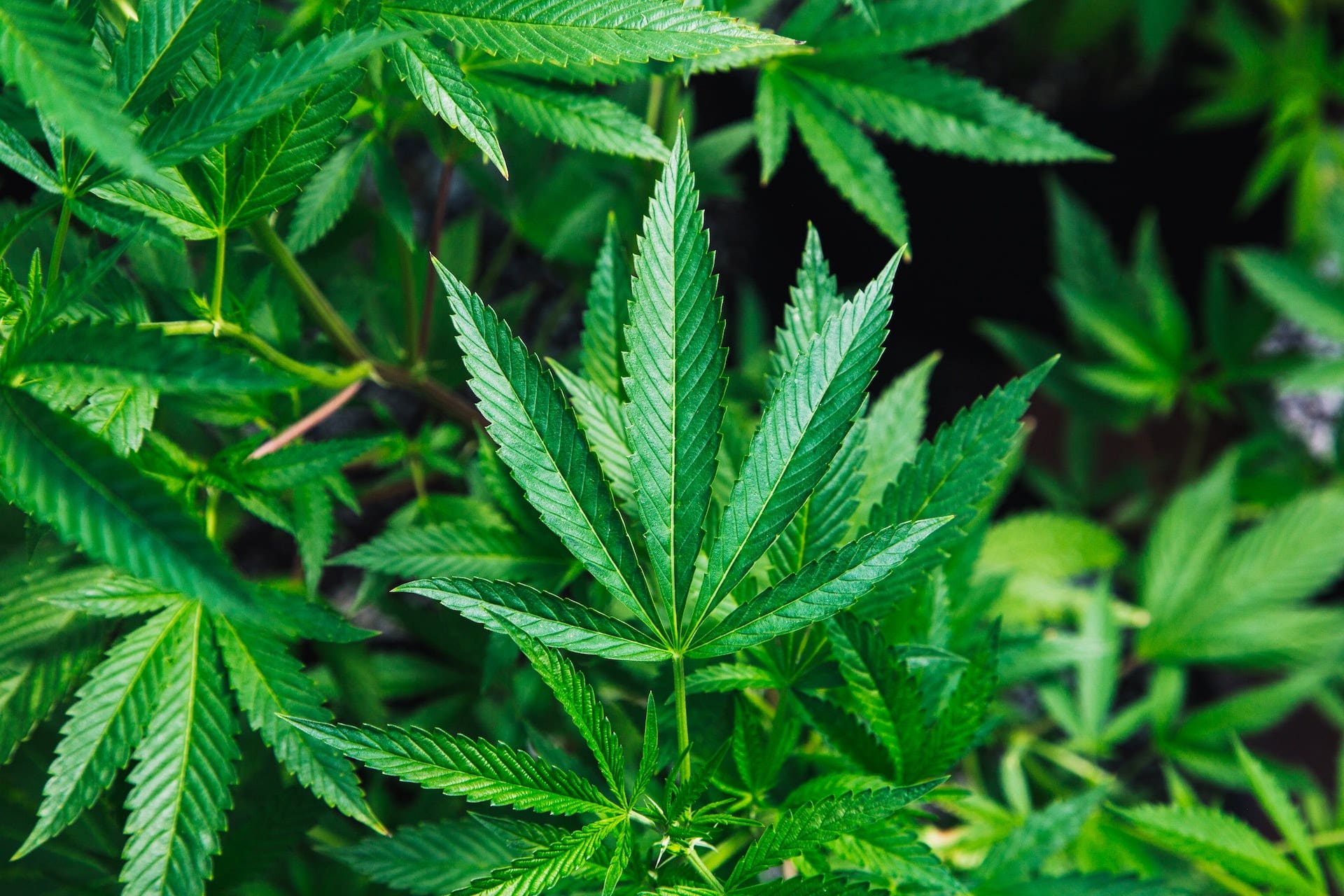
FREE REPORT: Click to Get the Benzinga Pro Insider report (no credit card needed)
This article was originally published on Leafly and appears here with permission.
Can you taste it, Leafly nation? 2023 is nearly here. This was an excellent year for weed and weed lovers, both in the cultural and political sense, and it’s only up from here. The new year is the perfect time to clean out that bong and prepare it for new things.
With dozens of cannabis competitions held this year, from the High Times People’s Choice Cups to the east coast Cultivators’ Cup to the Cowboy Cup to the insiders’ Transbay Challenges, winners of 2022 have emerged with a flourish. Here are some of the best strains, edibles, and dabs of 2022, and where you can find them.
This is how you can potentially earn extra income every single month..
Benzinga’s full-time trader Chris Capre is sending simple options trade alerts to traders like you. Click Here to get his trades for only $0.99!
California
The golden state remains the gold standard for craft cannabis. This year, we surveyed winners from all palates and walks of life, including the Emerald Cup, LA and SF Transbay Challenges (organized by Leafly contributor Jimi Devine), the SoCal High Times Cannabis Cup, the Farmers Cup, and the California State Fair.
Boutique brand Wonderbrett’s Orange Banana was the clear Farmers’ Cup winner, sweeping first place overall in addition to best aroma, effect, taste, and highest cannabinoids.
The People of SoCal spoke with their whole chest when they chose Top Shelf Cultivation’s Woah Si Woah and Sense Cannabis’ Pink Certz (also the SF Transbay challenge winner) as their indica and hybrid flower winners. Team Elite Genetics snagged the sativa trophy with Pearadise. Our 2022 Strain of the Year, Jealousy, grown by LitHouse, placed second.
Fig Farms had a great run at the Emerald Cup, nabbing both the indoor flower crown and the breeders’ cup with Animal Face and Holy Moly! For sungrown flower, Lemon Sponge Cake by Farmer and the Felon came out on top.
Fig Farms Animal Face. Hybrid. (David Downs/Leafly)
MOCA Humboldt also won half a dozen placements for terpenes and cannabinoids at the CA State Fair for their Wookies, Grape Cookies, and ZOG strains.
If you’re feeling hashy, LA Family Farms’ Rainbow Belts won best hash at LA’s Transbay Challenge, while Bear Labs’ Kiwi Thin Mintz diamonds came out on top for solvent concentrates.
Rosin-based edibles were a hit this year too. Concentrate brand Kalya Extracts collaborated on two edible winners this year, with Elefante’s papaya rosin gummies and Cosmic Edibles’ cookies.
Oregon
Oregon’s Growers’ Cup shows off the best of the Beaver State’s buds. Kapricorn’s Candy Rain won for indoor flower, while Cannassentials’ Spritzer clinched sungrown. Avitas won both the people’s choice award and placed second in prerolls.
Colorado
Colorado loves its fruit-forward strains this year, and evidently, it’s Runtz.
While DENREC’s Purple Monkey Face Slap won best flower overall at the Connoisseurs Cup, their Zkittlez Kush Mints also won best sativa. A straight Runtz by Lit Dispensary won for hybrids, and Merakicanna’s Dry Ice was deemed the indica winner.
In a twist, Harmony Extracts’ Original Glue beat out Runtz for best rosin concentrate. Meanwhile, the Colorado Cannabis Cup dubbed High Level Health’s Runtz the hybrid winner, along with the brand’s Cookie Monster for Indica and Sour Orange Zkittlez by Veritas Fine Cannabis for sativa.
Colorado’s commercial Grow Off strain was Super Soldier Serum #3, which Growlytics clinched for highest cannabinoids and second place for terpenes.
Arizona
The competition is heating up in Arizona for its second year of recreational sales. The Errl (that’s oil) Cup was the perfect stage for Trumed to assert their dominance with two winning strains, Rainbow Sherbert #11, and CK Jb’s Cut.
Illinois
In the Prairie State, big multi-state brands and grower-retailers still mostly reign supreme at competitions. Rythm’s Brownie Scout took gold and Revolution Cannabis’ Gorilla’d Cheese won for both hybrid flower and concentrates. To our surprise, Bay Area-based Fig Farms won the sativa category with Figment.
Michigan
The High Times Cannabis Cup (people’s choice edition) landed in Michigan, a state we love for their deep-rooted cannabis culture. Despite a long, cold winter, Michigan loves its tangy, tropical terps as Society C’s Spritzer and Hypha’s Tropical Runtz beat the competition.
Massachusetts
Massachusetts knows how to mix the old with the new. Bountiful Farms dispensary won the Cultivators Cup with Slap n Tickle, while Happy Valley scored in two Cannabis Cup categories for Super Lemon Haze and End Game Cookies.
Oklahoma
Yee haw! The Oklahoma Cowboy Cup saw Skye Flower’s Larry Bird and Bar-H-Industries’ Royal Kush lasso their way to victory.
New York
New York loves its classics. The NY Harvest Fest was full of cannabis lovers that will hopefully soon be on shelves as the state’s first recreational dispensaries come online. While these strains weren’t attributed, Blueberry Muffin beat out all competitors.
Montana
Montana is for (weed) lovers! The Lovers Cup held its inaugural competition that longtime Leafly contributor Max Savage Levenson called “a DIY celebration of the best weed for sex, the chillest strains for our long winters, and a much-needed opportunity to raise a glass to our unparalleled community of craft growers.”
The first Lovers Cup champions were Pure Remedies, which won with the Exotic Genetix creation The Woah!!!. Tropical Runtz made another winning appearance for best flavor, this time from Big Sky Buds.
Winners Circle—All 2022 US cannabis contest winners
- US—High Times People’s Choice Hemp Cup 2022 winners
- High Times Cannabis Cup Alaska: People’s Choice Edition 2022 winners
- Arizona Errl Cup 2022 winners Spring and Fall
- California—The Emerald Cup 2022 winners (California)
- High Times Cannabis Cup Southern California: People’s Choice Edition 2022 winners
- California State Faire Cannabis Award winners 2022
- Transbay Challenge 2022 Los Angeles winners
- Transbay Challenge 2022 San Francisco winners
- Greenwolf Zalympix 2022 winners and scores
- The Grow-Off 2022 Winners: California; Colorado; Hawaii; Maine; Massachusetts; Michigan; Oklahoma; Virginia
- High Times Cannabis Cup Colorado: People’s Choice Edition 2022 winners
- 2022 Colorado Connoisseur Cup winners
- High Times Cannabis Cup Illinois: People’s Choice Edition 2022 winners
- High Times Cannabis Cup Massachusetts: People’s Choice Edition 2022 winners
- High Times Cannabis Cup Michigan: People’s Choice Edition 2022 winners
- New York 2022 Harvest Fest winners
- Oklahoma 2022 Cowboy Cup winners
- Oregon Growers Cup 2022 winners
- Washington Dockside Cannabis Cup 2022 winners
22 Best Brands of 2022
A look at some of the biggest winners in weed.
DECEMBER 30, 2022

By Benjamin M. Adams, Jimi Devine, Ellen Holland, and Ashley Kern
Brand-building is big business, particularly in cannabis where customer loyalty reigns supreme when it comes to success. Whether it was in making new types of cannabis, growing quality flowers, or crafting terpy and potent concentrates and delicious edibles, here are our picks of some of the brands that defined 2022.
WEST
Compound Genetics
Compound Genetics went into 2022 riding on a high and just kept on sailing along. Massive seed drops and a variety of people taking home trophies all over North America with their gear are seemingly commonplace for them at this point, but it’s still impressive.
We’ve had a front-row seat to their breeding efforts since the move to San Francisco a few years ago and then the eventual partnership with Node Labs where they phenohunt and stress test the new gear to make sure it’s commercially viable. From that work we’ve seen names like Jokerz, Red Bullz, and Pave explode onto the scene.
“2022 has been a year of adapting to my surroundings, opportunities, and adversities,” founder Chris Lynch says. “High levels of success bring new challenges that constantly test your ability to perform and stay consistent. I’m grateful for where I am in this industry and what I’ve achieved with Compound Genetics. Being in my position is something I take seriously, it’s a unique responsibility that’s driven by my passion for quality. I’m excited for the next chapters with this special plant and where they take me.”
Don’t expect anything to slow down in the near future. This year for The Emerald Cup Compound is releasing the Jokerz line. The pairing of Jet Fuel Gelato and White Runtz was one of the strains that Compound used to launch their flower line earlier this year. The community is thirsty for a new round of crosses from it.
It’s also fair to expect Compound’s international profile to continue to build. There are a few factors contributing to that including their collaboration efforts with Green House Seed Co. and their partnership with Paradise Seeds to facilitate European distribution.
As for what strains to keep an eye on, we saw a phenotype of Apples & Bananas x Pave that was batshit heat, but we’re sure you can expect a few more than that in 2023. -JD

Blueprint
As we mentioned in our strains of the year write-up, few have ever had a year similar to the one the Blueprint team had in 2022.
Even a couple months before they hit shelves in the summer of 2022, the hype was percolating hard. A lot of the biggest names in Sacramento, and hence elite cannabis in general, were saying to keep an eye out for what Blueprint had in store. They were not wrong.
The first drop featured names like P90 and Triple Lindy. They are still top of the food chain heat a year-and-a-half later as we noted in our favorite strains of 2022 where we highlighted the Triple Lindy.
One of the things that we got a kick out of about Blueprint was how close they’ve kept the cards to their chest when it comes to genetics. Most of the time lineage has a lot to do with what gets people excited. A lot of the hype we see in weed in general comes from the next generation of something with a known pedigree. Unlike these companies that push their genetics lines and work as the basis of their ethos, the fire behind Blueprint is pure heat. And the community figured that out quickly. Never will you hear anyone complaining because they don’t know the makeup of Blueprint’s genetics, they’re just happy they got to smoke it in the first place.
Blueprint sifts through roughly 140 new flavors every couple of months. We will continue to be wildly excited to try what they find and grow to some of the highest quality levels on the globe. We expect 2023 to see the same level of heat that won them the second edition of Zalympix and what a lot of people thought was the best flower at the industry mega show Hall of Flowers where they could be compared directly against the rest of the pack. -JD
Backpack Boyz
Since its founding as a delivery service in the Prop 215 era between cannabis powerhouses San Francisco and Sacramento, the Backpack Boyz have had a complete dedication to the absolute flame.
“So what I was trying to do at the time, was I was trying to get all of the buds that everyone wanted to smoke but didn’t have access to,” Backpack Boyz founder Juan Quesada told High Times. “I wanted to get that all under one banner and kind of be that one guy that you can see and can get everything from. So, long story short, that was kind of really where it started.”
When he first got the ball rolling he had a lot of deep connections on the cultivation side, but a lot of the product he was moving was white label heat from Sacramento. Eventually, the people coming for that Sac heat started asking Quesada about the flavors he was curating more locally. It was a big confidence booster for him.
Most famously, he would pop Lemon Cherry Gelato from bag seed in 2017. (We go into the full tale in our strains of the year section.) This would catapult the Backpack Boyz into California’s elite. They would eventually open their first retail location in early 2021. Two more would follow by the end of the year.
The brand has done particularly well in making inroads in Southern California after its initial founding up north. Quesada says having the heat helped but he gave his SoCal partners a lot of credit for helping him handle all the local hurdles that came with expanding the company’s footprint across the state.
In 2023, you can definitely expect the Backpack Boyz to keep stocking all the most elite cannabis in the state while continuing to curate a few exceptional flavors of their own. -JD

Fidel’s
The third and youngest son of L.A.’s favorite weed family (his older brother Serge is behind Cookies Maywood and his other older brother Aram is behind Gas No Breaks) saw one of the most epic 2022s of just about anyone and his new cultivation facility didn’t even open until the end of the year.
Helping backbone the big year was the rise of the hash hole, arguably the most exotic pre-roll currently available in California. Fidel first encountered the hash hole in Barcelona years ago at Spannabis. The locals would roll up an eighth with some rosin in it to celebrate the weed making it from California—or just to flex.
Back then, Fidel was already growing heat. After spending six years in Beirut from age 12 to 18, he returned to Los Angeles where he spent many years working in a hydro shop. Those years at the grow shop was where he dialed in his game and earned the name Fidel Hydro.
On a trip back to visit friends and family in Lebanon, one of his friends designed the now well-known logo. After that, the race was on. Things have gone so well with his brand that he’s even got his parents in on the act these days. He bought a printer for their house where they do quality control on all his packaging.
Earlier this year at Spannabis, he hosted one of the event’s most popping parties, the Hash Holes and Donuts event at Cookies Barcelona. Later in the summer, Fidel’s would take home top honors at The Transbay Challenge IV: Hollywood with his pairing of Kush Mints and Zkittlez.
And we can’t emphasize enough that all this happened before his facility was even open. Expect to see Fidel’s flower on even more dispensary shelves across California soon. Until that day, you can still get your hands on hash holes—if you see them on a menu, pull the trigger quickly. They don’t last long since they’re worth big money outside the state, they are one of the few packaged products there is true value in moving compared to bulk flowers in big quantities. -JD
710 Labs
The name 710 Labs is synonymous with small batch quality with myopic attention to detail. Every good concentrate must begin with a good strain, and the company’s cultivation operations are steadily growing. 710 Labs attributes that growth to their commitment to integrity in the cultivation process.
“We’ve had a lot of growth in the past year, which wouldn’t be possible if we didn’t stay true to what got us here: quality focused small batches with a wide variety of flavors,” says Richard Sciascia, vice president of cultivation.
Even though 710 Labs has expanded from its homebase in Colorado to California, they still adopt the same principles they’ve observed since the beginning when they launched as a much smaller operation a decade ago. Part of that is allowing the unique and individual traits of cultivars to shine. That can’t happen when producers pump out mass amounts of a single strain.
“We aren’t monocropping rooms with one genetic, we flower rooms with one cultivar per bench,” Sciascia says. “Other companies—a fraction of our size—are growing batches many times larger with one genetic. That doesn’t excite us.”
Some of that quality is lost when companies bank on strain yields alone, or other aspects that don’t necessarily benefit the consumer.
“We love this plant and all her expressions, and want to see cultivar diversity in our offerings to the consumer,” Sciascia says. “Palate is subjective, and if we limited ourselves to the 10 hottest strains of the year, we’d be doing a disservice to the connoisseur and casual smoker alike.”
710 Labs houses a genetic library that varies between 150-200 unique cultivars, rotating between old, new, experimental, and the tried-and-true. Some classics associated with 710 Labs—Ghost Hulk #25, Black Mamba #6, and Randy Watzon—are grown regularly, sometimes shelved for six months, and others are discarded quickly to make way for new additions. Over 80% of their library has been selected by the 710 Labs team from seed. Pheno hunting is part of the agenda and selections depend on whether the end result is hash or dried flower.
Currently the focus at 710 Labs is finding rare terp combos in newer cultivars.
“The never ending terp quest is what excites us, and we hope you feel the same,” Sciascia says.
Beyond flower, 710 Labs live resin pens passed the bar among highly critical vape reviewers. Their solventless water hash, rosin, and rosin sap are no joke, as they begin with flavorful flowers. Persy sauce is also a squishy new addition to their concentrate lineup, as the trichomes are preserved in the first wash to maximize flavor. -BA

Veritas
“Veritas” is Latin for “the truth,” and it’s all about transparency at this Colorado-based operation. The Veritas team is currently working with Node Labs to produce new genetics, and with that, they will be producing healthy clones set to be released to the public in early 2023.
Narrowing down those clones is a long, meticulous process, and incorporating the right technology is key in keeping things organized and avoiding losing track of special genetics.
“We take about 400 different cuts, and then those have been removed from the mom and manicured [and placed] into our cloners,” says Jordan Plunkett, marketing director of Veritas. “And from there, it takes about 14 days.”
Part of their operations incorporate equipment that is exactly what you’d expect, while other processes are unique to the company. Veritas plants flower in atmosphere-controlled environments under high pressure sodium lights. The crew then adds as many as 100 bamboo stakes to help spread out branches and maximize trichome development.
“We have bamboo stakes that we use in our plants,” Plunkett says. “This is something that we have not seen any other cultivators doing. The reason behind it is that we believe it gives more stability. And then they actually utilize these stakes to track where it’s at in the process. So this is a very unique kind of opportunity to really take care of our plants the right way. It’s definitely not an easy process; We don’t take the easy approach to this by any means, but we do believe that this will give us a better quality.”
Veritas recently released infused joints, containing 1 gram of Veritas flower and 0.25 grams of ice hash. In 2021, they also released a limited-edition half-ounce offering that resembled a drink holder you’d get from a fast food joint and contained a four-pack of eighths. Stay tuned for more unusual products that you won’t find anywhere else. -BA
Viola Brands
Al Harrington’s Viola Brands, named after his grandmother who turned to medical cannabis to battle glaucoma, is a blueprint for success in the world of cannabis. You can tell by the company’s high-end promotions, packaging, and most of all—their consistent quality flower.
This isn’t by accident. No spur-of-the-moment decisions are made when it comes to narrowing down cultivars at Viola. The company’s cultivation team will grow new genetics several times over before deciding if it makes the cut.
“When bringing in new genetics, we grade each on bag appeal, yield, and testing both THC and terpenes,” says Tanner Steele, Viola’s vice president of operations. “Generally, we like to grow new genetics three to six times before releasing them to market. This ensures everything we produce thrives in our environments to provide a consistent customer experience.”
Both cultivation and processing take place at Viola’s original 12,000-square-foot facility in Colorado. The company has expanded well beyond the limits of Colorado, however. In Falls City, Oregon, Viola operates an 80,000-square-foot facility. In Detroit, Michigan, Viola operates a 46,000-square-foot cultivation facility as well as a provisioning center. In Detroit, 40 cultivars are rotated each year. The process begins with the seed.
“When we look to bring unique or different genetics to the market, we start with seeds,” Steele says. “Most Viola strains are a result of several rounds of pheno hunting to get the best genetics for our environment.”
Clone mothers are rotated and replaced on a regular basis. “When re-populating our flower rooms we clone from moms whose genetics have already been proven to provide yield, appeal, and testing for THC and terpenes,” Steele says. “We keep our moms alive for two to three months maximum before replacing them with a new mom from the genetic line.”
Beyond cannabis, the Viola Cares community engagement branch works to reinvest in struggling communities and promote social equity inside the cannabis industry. Last year, the company launched the Harrington Institute of Cannabis Education, with the help of the Cleveland School of Cannabis to provide an online curriculum designed to prepare students to work in the cannabis industry. Viola also launched an accelerator to help cannabis start-ups get a foot on the ground, and it has a very specific goal: to create 100 Black millionaires within the cannabis space. This is because they believe Black business owners face the most challenges in this industry. -BA

Freddy’s Fuego
Pirate-themed Freddy’s Fuego, a Tier 3 producer/processor in Washington state, adopts a more interactive way of narrowing down the finest fire in the state from an assortment of breeders. Freddy’s annual pheno hunt called “The Hunt” is a spectacle, as the public judges new cultivar cuts on the Hunt Scorecard with questions about visual aspects, taste, aroma, and overall appeal. It’s almost like hunting for booty and gold.
“Freddy’s embodies the pirate archetype—the fearless soul of exploration and a loyalty to evolution as we navigate the uncharted waters of the industry,” says Freddy’s Fuego Marketing Director Blake Stango. “Always on ‘The Hunt’ to find the freshest and rarest genetics.”
Freddy’s Fuego was founded in 2013 by Ben Davis and Tim Haggerty. Since then, Freddy’s has won numerous awards including Best Indoor Grown Hybrid Flower for a fire batch of LA Cookies at Dope Cup Washington in 2018 and three awards in one year at the 2019 High Times Cannabis Cup Seattle for Larry Cake flower and pre-rolls, as well as Guava Jelly, named after a sensual Bob Marley song.
Like High Times People’s Choice Cannabis Cups, during The Hunt, they don’t limit the judges to exclusive experts. Anyone can login, fill out a Hunt Scorecard and begin judging.
“This year in August, we popped 520 different seeds from about 10 to 15 different breeders—40 different strains,” Freddy’s Fuego Director of Cultivation Roger Hale says of the event that generates a fair amount of excitement in the Northwest region.
“Our process for running through the pheno hunt is we pop all those seeds out of the rockwool, grow them for X amount of time until they’re large enough to basically go into flower,” Hale says. “At that point, we take a bunch of clones from them to produce moms stock, throw them into flower, flower those babies out, get strain notes on them: how they grew, what the yield is, the output inside of our environment, how our feed was, everything.”
Judges choose their favorites in the Hunt Scorecard based on flavor, uniqueness profile, all the good things that everybody’s looking for.
The first iteration of The Hunt begins in January every year, with subsequent judging rounds taking place in the following months. “We release all of those flavors to the public right around January and let everybody try them out,” Hale says. “Everybody gets to vote on which strains they want to have go into the next iteration of The Hunt.”
They continue to narrow down strains in subsequent rounds going into the summer. Freddy’s Fuego then takes that information and advances to the next step of The Hunt, the harvest, when the team gets the strain data back. “The last iteration of our hunt, we run those through the end of summer, choose our top four to six cultivars that we’re going to put into finalists based on what the public chooses,” Hale says.
Then Freddy’s throws a big party at the end of the year and lets everybody check out the new strains and vote on their favorite phenos. The company then takes those and begins producing them for the next year under their exclusive Freddy’s Finest label which is basically their black label collection. This allows the public to take part in the cultivar selection and judging process.
Consumers can buy limited edition eighths of The Hunt selections. -BA
Exotic Genetix
Few companies have racked up as many Cannabis Cup wins as Exotic Genetix. This seed bank, based in Washington state, has produced so many classic cultivars that if you haven’t smoked at least one, you better start the roll up right now. A standout includes the 2018 classic Rainbow Chip, a winning combination of Sunset Sherbert and Mint Chocolate Chip. With Kush and Cookies in the family tree, Rainbow Chip has gas.
“That was pre-Runtz people wanted the gasses, the fuels,” breeder Mike explains of the older Rainbow Chip release. “They range in aromas, the gassy fuel to some of the Rainbows are kind of funky, soggy. Some of them have like a nice ice cream/sherby/gas element to it.”
Founded in 2008, Exotic Genetix also gave the world Kimbo Kush and Grease Monkey. In 2022, we tried a lovely version of Funky Charms, Rainbow Chip x Grease Monkey, grown by Wood Wide High Craft.
In 2022, Exotic Genetix released a line of Red Runtz crosses in feminized seeds, a follow-up to the success of a 2021 Red Runtz line release.
“It was super popular, it erupted,” Mike says of the 2021 release. “I told myself after that release, like I’m only going to once, I’m not trying to stick around on Runtz because, you know, it’s the hype thing. And don’t get me wrong, Runtz is hype, but also there’s a reason for it because it’s good shit.”
He says Runtz, when paired with his genetic line-up, gave it a different edge by providing that “Runtz flair candy” taste the market was craving.
“Now, I’m going to try not to do any more Runtz. It’s hard, because people ask me every day like when’s the Greasy Runtz going to drop and I’m like ‘Fuck. I’m not doing Runtz anymore,’ but I do have a Greasy Runtz line-up just waiting to be released,” he says with a laugh.
Working with feminized seeds has been a key in his success.
“When you do feminized seeds, you take an amazing strain in female form and you manipulate a few things and you can reverse that female and make it release male pollen,” Mike explains. “When you do that, and you use that pollen on your receiver, so to speak, all your other strains, it makes all those seeds that you made feminized. So, now you end up with seeds that you don’t get any males from.”
When creating new kinds of cannabis the results generally either suck or are amazing, there isn’t much in between, he says.
“Ever since I started reversing things that started awesome and making feminized seeds with those amazing starting plants, or the starting plant that I reverse, most of the things they come out amazing,” Mike says. “I don’t mean that like I’m full of myself. I mean like when you choose a male that you can’t see how it’s expressed in female form. It’s hard for you to get a predisposition of how that’s going to breed until you do it a couple times and see what your offspring do. But with the female that you reverse, you already know… it’s kind of a cheating step, but it’s there for a reason and ever since it’s been a told that I’ve used I haven’t turned back because it saves you a lot of time of hunting, going through stuff that isn’t what you’re looking for.”
Mike gained the nickname “Big Stimmy” during the pandemic for Instagram live broadcasts during the time of government stimulus efforts in which he was giving away seed packs. Big Stimmy hosted the “Milk Show” which was full of people pouring milk on unsuspecting victims for prizes.
In the future, look out for the next release of Gary Poppins, Gary Payton x Red Pop. -EH
Archive Seed Bank
Ask a legendary cannabis breeder what they’re smoking and they’ll likely flip the question around to the one thing that is ever-present in their mind: selecting, creating, and cultivating new types of flowers. That was the case when we caught up with Archive Seed Bank breeder Fletcher Watson as he drove to his grow room to continue sifting through what will become a new line of genetics, the Flavour Pack reversal feminized line. The journey breeders go through to bring new cultivars into our lungs are immense. When we speak, Watson’s getting down to the final stages of selection. He’s taken the Flavour Pack cultivar he created and reversed the plant to produce male pollen. Next, he took that male pollen and combined it with 60 different varieties of cannabis. He’s grown out 30 types from the seed stock so far, this is only the initial run.
“I’ve got about 150 to 200 seed plants of those Flavour Pack hybrids with all kinds of other stuff that I’m literally on my way driving to right now, to go through the samples and start picking through the population,” he says over a phone call in early fall.
Flavour Pack, which is only one of the seed lines Watson is working on simultaneously with others, blends together old and new genetics in the cannabis family tree. It’s a cross of Hollywood Pure Kush, an OG Kush cut, with a newer one of Watson’s creations, Moonbow (Zkittlez x Do-Si-Dos).
“Essentially what we do is try to improve certain cultivars that are either popular in the market—the terpene profile is popular in the market and I just like it personally a lot—and mix it with a bunch of old weird stuff that may not have market appeal,” Watson says. “The reason I breed cannabis is I want to, in one way or another, improve upon a variety.”
Watson was 16 when he started growing weed and career-wise, it’s all he’s ever done. His nickname “ThaDocta” comes from a screen name he chose back in those days, one he gained from his time at the skatepark, where he hurt himself so often he started carrying a medical kit.
Archive was founded in Oregon in 2011 and has since blessed the world with many award-winning strains. Archive’s OGKB was one of the parents of Do-Si-Dos. Rainbow Belts (Moonbow x Zkittlez) came out in 2017 and is still crushing the competition scene. Watson sent out Rainbow Belts genetics to about 50 people in 2020 and once it reached the clone-seller market it exploded. It has the fruity Zkittlez terps that people love, combined with a kushy dankness.
“The reason you don’t see too much Zkittlez on the market is it’s such a difficult plant for most people to grow,” Watson explains. “By expanding a line that has that terpene profile really well stabilized within the population, people are able to take advantage of that market that wants that smell and flavor, but get better plants, with better yields and higher [THC] tests making it more marketable to the broader consumer.”
And when an Archive cultivar reaches that stage it can really pop. In 2022, Archive Seeds released Dark Rainbow 2.0. On its website Archive explains the first generation, Dark Rainbow 1.0, used GMO combined with Moonbow and carried the gassy flavors of the GMO alongside the lime candy taste of Moonbow. The second generation is GMO combined with Planet Purple, the offspring of which is generally not sweet, but “raunchy stank breath rotten meat gas tank stank.” Watson says this one is great for hash, which Archive also makes and carries in its Portland, Oregon shop along with house flowers and clones.
“My breeding is less of knowing exactly what I’m trying to make, it’s more of throwing darts at the wall and seeing what sticks,” Watson says. -EH
Sunday Goods
Sunday Goods (owned by its parent company The Pharm) is based in Arizona and focuses on producing quality cannabis combined with feel-good vibes.
Although Arizona is often associated with brutally hot temperatures, Sunday Goods and The Pharm’s flower is grown in a 7-acre, 300,000-square-foot Dutch glass greenhouse in Willcox, Arizona. The climate in Willcox is mild compared to other parts of the state and often sees more rainfall than Phoenix or Tucson, making it a good place to grow quality cannabis (although many other agricultural goods thrive there as well).
Some of the brand’s most high-demand products include high-potency THC strains, including one called Bangers x Mac.
“That’s a cross between Headbanger and Miracle Alien Cookies (MAC), and it’s a super dank, very diesely, piney strain,” says Matt Daley, vice president of marketing for Sunday Goods.
Not only does Sunday Goods flower take advantage of the mild climate, the location of the grow is also home to a geothermal well that The Pharm uses to reduce heating needs during the colder months, helping to reduce energy consumption.
Alongside its own flower Sunday Goods offers a wide variety of other local cannabis brands, all of which align with the brand’s desire to offer consumers with the best products to help them feel their “Sunday best.”
Sunday Goods is dedicated to the support of the cannabis community, having partnered with the Last Prisoner Project to raise funds and help the organization continue to fight against cannabis injustice. In November 2021, Sunday Goods joined with Arizona NORML to host expungement clinics for those who have low-level cannabis offenses on their records.
“We’re just looking to provide relief, a pathway to creativity, an outstretched hand to an elevated sense of being because I think all of us here at Sunday Goods believe that everyone stands to benefit from what this plant can deliver,” Daley says. -AK
Wyld
Wyld is one of the most recognizable and popular cannabis edibles brands. Praised for its consistency across multiple markets (it began in Oregon but has since spread to Arizona, California, Colorado, Michigan, Nevada, Oklahoma, and Washington), Wyld earned its place as a top brand by producing a line of fruit-forward gummies.
According to Wyld Corporate Communications Specialist Rachael Smith, there are three flavors in particular that consumers have fallen in love with.
“Our top three national bestsellers are elderberry 2:1 THC:CBN indica-enhanced, raspberry sativa-enhanced, and huckleberry hybrid-enhanced gummies,” Smith says. “Most states follow this same trend with elderberry leading the pack. Recent sales data shows Wyld leading the country nationally with the top six edible products in the U.S. and with nine products in the top 20—more than any other single brand.”
The Wyld supply team goes to great lengths to ensure that each product includes the advertised amount of potency.
“We use a three-test process to ensure a high-quality end product,” Smith says. “Test one: cannabis extract is tested before we receive it to ensure quality and potency. Test two: Our cannabis-infused coconut oil is tested again in house to ensure appropriate dosing in our products. Test three: Once made, the edibles are tested again to certify they are consistent with our exacting potency standards. The last test also includes random selection of products for testing by a third-party lab. All of our third-party testing is conducted by state-certified lab partners.”
Wyld is also dedicated to sustainability, going as far as providing an annual social and environmental impact report (data for 2022 is set to be released during the first half of 2023).
“We’ll be launching our new solventless hash rosin gummy brand in select markets in the fourth quarter of this year,” Smith says. “In 2023, in addition to rolling out compostable packaging in the U.S., our plans include expanding further into the Midwest and East Coast and, as always, we look forward to offering new real fruit flavors with innovative cannabinoid content—keep your eyes on Wyld, we’ve got so much more to offer.” -AK
High Road Edibles
Montana is known for its vast landscapes, pristine natural beauty, and as of Jan. 1, 2022, adult-use cannabis.
High Road Edibles predates this monumental shift from medical to adult-use sales, having established itself in 2019. The brand was founded by Michael Zens and Ben Miller, two college roommates who enjoy spending time outdoors and sought out to develop a cannabis brand exclusive to their home state.
All of High Road Edibles products are made with full-spectrum cannabis extract. Hybrid cannabis strains come from Sacred Sun Farms, and indica- or sativa-leaning strains come from Collective Elevation, both of which are farms based out of Bozeman, Montana, located in the southern part of the state. High Road Edibles is also partnered with a local dispensary, Dancing Goat Gardens.
The brand features an assortment of gummies, chocolate bars, and mints.
“We started with kind of trying to pick flavors that we thought match the mood state and the strain types we were using,” Miller says. “So more kind of bright, energizing flavors for things like sativa, and more kind of deep, rich flavors for the indica. And then for the hybrid, we kind of just tried to hit those quintessential candy flavors that we all really enjoy, you know, peach and green apple on the gummies, cinnamon on the mint, and then that coffee almond on the chocolate bar.”
Zens adds that their sativa-leaning strawberry flavor gummy sells the best in the Bozeman/southern Montana area, where people tend to be more active. However, in the northern part of the state, around Kalispell and Whitefish, there are more older consumers who prefer the indica-leaning blood orange gummies. This summer, High Road Edibles released a huckleberry flavor, in honor of the berry of the same name that populates the northern parts of the U.S. and is a celebrated summertime ingredient (Zens and Miller joke that huckleberries are a prominent food source for wild bears, as well as tourists).
While the state’s medical cannabis program was restrictive, Montana’s adult-use program has helped open things up. According to Zens, it has allowed the local cannabis community to develop and grow.
“It’s been really kind of fun to actually like, get out there and meet everyone,” Zens says. “Because in the restrictive market, everyone was kind of competing against each other a little bit more. We’re in this wholesale recreational market, everyone can kind of specialize in something and support each other and link up, and kind of create a community that wasn’t there before as much.”
Both Miller and Zens enjoy floating in the various rivers in Montana, but agree that cannabis consumption can be an enjoyable companion for numerous other outdoor activities including hiking. The founding duo alluded to new flavors and products coming out in 2023. -AK
Aether Gardens
Located in the northeast corner of Las Vegas, Nevada, Aether Gardens’ state-of-the-art facility covers 120,000 square feet divided into numerous sections including cultivation, extraction, manufacturing, and distribution. It was recently ranked #10 on a list of MJ Unpacked’s hottest Nevada-based cannabis brands, which is no surprise since it won two placements in the Cannabis Cup Nevada: People’s Choice Edition in 2021: 2nd place for best indica with Slurricane #7, and 1st place for indica concentrates with Banana ice water indica live rosin. Aether Gardens also has a 2019 High Times Cannabis Cup Nevada 1st place win for hybrid concentrates with Zweet Insanity.
According to Aether Gardens Cannabis Officer Justin Hernandez, consumers should keep an eye out for the popular strain MAC that has been thriving in the facility. Strains like Blue Cheese, Banana, and Blue Java are also popular. Online, Aether Gardens recently showcased its ultra-sweet, flavor-packed strains Mimosé (Mimosa x Rosé) and Terple (Tropicana Cookies x Slurricane #7).
Aether Gardens has been producing cannabis out of its facility since 2018, and, over the years, has continued to develop its tissue culture lab, which now houses 400 cannabis varieties. All of the strains are grown in a structure that takes advantage of sunlight through the use of glass panels. The company also formulates its own nutrient line.
Other areas of the facility are dedicated to the creation of numerous extraction products, from concentrates to edibles. Aether Gardens’ production also serves many other brand partners, such as house brand The Fifty Five as well as STIIIZY, Binske, Huni Labs, Pro Canna, and Hervé. -AK
Mountaintop Extracts
Mountaintop Extracts has been helping patients gain access to clean, effective cannabis medicine since 2012, but now that adult-use sales is legal in New Mexico (effective as of April 1, 2022), the brand continues to offer quality cannabis products to a wider market.
The Mountaintop Extracts logo features a towering mountain inspired by the Sandia Mountains, which overlooks the city of Albuquerque where the brand is based. Mountaintop Extracts is 100% family-owned, and founder Eric Merryman holds his brand to the highest standard when producing cannabis products for consumers.
“At Mountaintop [Extracts] we really focus on clean, consistent safe medicine and are committed to the educational process so much needed in our industry,” Merryman says. “We are extremely passionate about what we do and have been very fortunate to attract like-minded employees who are making a difference in our industry.”
Joel Krukar, director of business development and marketing at Mountaintop Extracts, explains that the brand utilizes proprietary methods and techniques, which it’s been perfecting for years, to ensure that all of its products are of the highest quality.
“That’s what makes our edibles different. Our vape cartridges are live resin true full spectrum…We don’t cut it with anything. Nothing is reintroduced,” Krukar says. “And our diamonds became a huge success, [they were] really big in the beginning because we were one of the first [in the state] to actually really master growing large grade diamonds. I believe the largest diamond, it was like 7 grams, actually. So we have techniques to really grow very rich, large diamonds.”
And Mountaintop Extracts has the accolades to prove it too. At the 2018 Essie Awards hosted by Kurple Magazine, Mountaintop Extracts took home awards for best infused product, best edible, and best concentrate.
A longtime favorite of medical cannabis patients, Krukar says that the brand’s gummies are one of their biggest sellers.
“Our gummies are by far the highest velocity products we have. We are producing more units of gummies per month than anything else,” Krukar says. “But it’s also sometimes a condition of the market. And I personally love our vapes, and people love our vapes as well too, because we’re the only ones providing that live resin, true full-spectrum, full-integrity vape cartridge.”
In the very near future, Mountaintop Extracts has plans to reveal a new logo, new packaging, and a new patent-pending product to add to its current lineup. –AK
EAST
3rd Coast Genetics
There’s a reason behind why Michigan-based 3rd Coast Genetics calls itself “the swank of dank.” As purveyors of some of Michigan’s finest cannabis, 3rd Coast Genetics focuses on the strange and the unique. The team behind 3rd Coast Genetics are the creators of Smorez, Butterfingaz, and many other strains that are sought after in the Midwest. 3rd Coast Genetics cultivar names will grab your attention, and they’ll stand out from the typical strains that you see every day.
“I am the creative force behind 3rd Coast Genetics,” Max Yields tells High Times. “The 3rd Coast is the shore of beautiful Lake Michigan—the place where I call home.”
Yields is the creator of Oreoz, Pure Michigan, Tagalonz, and many other strains, armed with a passion for breeding and love for pushing the boundaries of quality. “3rd Coast” generally refers to the Great Lakes area in the Midwest. It’s too easy to ignore the fire that comes out of Michigan when it’s overshadowed by countless other brands.
Some of these rare finds include crosses like Walfredo (MAC 1 x Peanut Butter Breath) or Thick Strawberry Goo (Red Pop x Pure Michigan) with 10 beans per bag.
Some other strains that caught our attention—with a little help from the creative names—were Spock’s Brain (Grease Monkey x Peanut Butter Breath) and Wolverine (Animal Cookies x Pure Michigan). But don’t get distracted by the names, because 3rd Coast Genetics retains the quality you want, preserving those subtle traits.
“I feel the most important thing that I do, the one thing at the epicenter of all of my hard work, is the practice of selecting unique and amazing traits,” Yields says. “Everything is dependent upon genetics and being able to recognize the component that makes something so special or unique, even if those traits are subtle.” -BA
Pure Options/Pro Gro
What makes Pure Options unique? Perhaps it’s the company’s connection to the local community in Michigan. “Our success ultimately is deeply rooted in our community here in Lansing,” says Pure Options Director of Pro Gro, Jacob Nelson.
Pure Options has been in operations since 2011 and has become a staple source of craft cannabis in Michigan. One of the team’s long-term goals has been to make it into the spotlight and operate a craft cannabis business at a larger scale.
“We built our foundation as a very small team operating in the traditional market taking great caution to keep our heads down and stay focused on this mission,” Nelson says. “It was during this time that we built our culture in preparation for our future. So, when people ask us what makes Pure Options unique our answer is always the same, it’s our team and it’s culture.”
Pure Options’ uniqueness isn’t defined by any particular special process or “secret sauce.” The entire team Pure Options are students of cultivation. Small details matter, and cutting corners for profit is never an option, Nelson says. Every day is an opportunity to learn, refine processes, and improve the final product. This mindset is fueled by passion for the plant.
“Thankfully for us our love for the craft and attention to detail hasn’t gone unnoticed,” Nelson says. “Our team’s passion and culture has helped us deliver high quality cannabis to the Michigan market at scale and along the way we’ve been able to secure some amazing partnerships by proxy.”
Some of Pure Options’ partnerships include collaborations with Archive Seed Bank, DEO Farms, Wizard Trees, and Skunk House Genetics. This has given the team the opportunity to raise their platform with exclusive strains from some of the best breeders in the industry.
“The entire Pure Options team is excited for what the future holds,” Nelson says. “We cannot wait to operate on the national stage next and are thankful for everyone who has helped reach our goals along the way. It was all a dream, and teamwork truly does make the dream work.” -BA
Aerīz
Aerīz, pronounced like “arise,” is the producer of aeroponically grown flower, as well as full-spectrum hash oil, sugar, diamonds and sauce, budder, and many other products. They are “the largest aeroponic cannabis cultivator in the world,” according to their website. The company probably focuses on root health more than most typical producers.
Roots are misted in Aerīz’s custom-fitted tables, where cultivators have full control over nutrient uptake. The closed-loop system helps the team to minimize nutrient waste. While it’s a system that would cause a novice grower to most likely fail, the team at Aerīz have perfected the practice.
“We grow aeroponically, for basically two main reasons,” Aerīz Senior Producer Ian Krass tells High Times. “One is the quality of the flower. And the second is the environment. So the easier thing is the environment, which has an aeroponic growing process.”
Krass went on to say that the grow medium is recyclable, and that they’re not using any soil, so there’s a lot less waste. “Our water nutrient solution that the roots get nested with is recycled in a closed-loop system,” he explains. “So, you know, basically, it’s the least waste you could possibly generate growing cannabis. And, you know, being environmentally friendly is definitely at the core of our mission.”
Aerīz’s aeroponically grown flower is sometimes converted into full-spectrum hash oil, distillate, sugar, shatter, budder, and infused honey sticks.
Aerīz is currently partnering with a company called Pachamama, that does carbon offsets. Quality is achieved using a closed loop, computer-controlled nutrient delivery system. The team is very precise in terms of giving the plants exactly “what they need, when they need it.”
Aerīz has expanded beyond Illinois with operations in Arizona as well. Be sure to check out their powerful cuts of Jenny Kush (generally accepted as Amnesia Haze and Rare Dankness #2) and Pink Kush (King Kush x King Kush). -BA

Helios Hash
Helios Hash, a solventless hash producer based out of Maine, rocked the hash world in 2021 with a win at the Ego Clash. The winning entry, a mix of Rainbow Belts with a small amount of Ice Cream Cake, represented a major victory for the family-run brand. After all, they won the well-respected hash event with sungrown plants from their first commercial harvest, and 2022 was only their second season growing.
“It’s your classic Zkittlez,” Stav Anagnost says of the Ego Clash-winning entry. “It’s one of the more sought-after type of terps. We hit it at a good time. A lot of people are growing Rainbow Belts.”
Anagnost runs the company alongside two of his brothers, Alex and Demetri, and believes their Rainbow Belts edged out the competition because of their growing style, which he describes as “West Coast.”
“We grow sungrown and our entire operation is based off of sustainable regenerative farming,” he says. “What we do is we are resin farmers so we strictly grow outdoor plants one time a year, seasonally done for resin and our resin is for hash.”
Hash produced from the resin of sungrown flowers is incomparable and is more flavorful than hash made with indoor flowers, Anagnost says. In sunny California, sungrown flower is decidedly more common than in Maine, where the weather is colder and harsher. But Anagnost argues the weather challenges in Maine contribute to the quality of the hash.
“Resin is a defense mechanism to the plant,” he explains. “So the more that the plant gets certain stressors in its environment allow the plant to produce a better quality and more luscious resin.”
The goal at Helios is always full-melt.
“At the end of the day there’s nothing that can compete with the sun,” Anagnost says. “We’re strictly a hash-based company. Everything we do is sungrown and we believe that’s the best representation of the plant and of the resin.”
Looking ahead, Helios is hoping to start a breeding project. Their hash, only produced once a year, mirrors the successful wine industry model of select year limited releases. -EH
Kolektor
When it comes to building a brand built on hype, heart, and heat, Kolektor’s got it down. The only things this Bronx-based underground cultivator says he won’t put out is the stuff that you can find everywhere. Don’t look to Kolektor for Gelato or Runtz; he came up in the era of Platinum Girl Scout Cookies and started growing after getting tired of seeing the same old flowers. “I feel like the market is so oversaturated with those things. You can get them anywhere so there’s no point in me growing those cultivars,” he says over a phone call. “Everybody else is doing it and I’m trying to create my own lane.”
Right now, his lane seems wide open as he looks towards licensing and continues to mingle with California cannabis elite heading across the country to explore the burgeoning New York scene. He’s got West Coast growing experience and, through Instagram marketing, has already met a few major players in California cannabis.
“California knows that New York is a bigger market,” Kolektor says. “California has always been at the top of the game in production, and New York has been just buying. So now you have a bunch of local growers popping up, which is really cool.”
When we speak in early fall, Kolektor has just got through the last of other breeders’ genetics and popped 100 seeds of his own to grow out. The male he’s currently working with is a Black Mamba crossed with four different female cultivars. The results are just unnamed crosses for now, Candy Cane x Black Mamba, a Honey Banana x Black Mamba, a Grape Pie x Black Mamba, and an unrevealed fourth. Kolektor’s also creating his own genetics with Purple Taipan (Grape Pie x Black Mamba) pollen and says the hope is that the brand can create a menu “fully curated, bred, and grown by us.” When we connect, he’s just harvested a Sherb Breath, Sunset Sherbert x Mendo Breath.
“It’s super heavy on the Mendo Breath so you get a lot of that like savory terps, almost like a beef soup, beef stew or something, it’s real weird,” he says.
Kolektor grew up in the South Bronx and never thought he’d be able to grow cannabis. Serving in the Army in Afghanistan he saw acres and acres of weed growing in the desert and it hit him that growing it himself might be a possibility. After he got out of the Army, he took some seeds back with him to New York and started experimenting. He’s making plans in terms of gaining official state cultivation licensing and wants to stay close to the Bronx.
“That’s where we can serve the community the best,” he says. “A lot of investors want us to go upstate, but if we go upstate we’re just going to service a bunch of white folks, like our social equity plan will be shit at that point, you know? I’m from the Bronx apartments in Yonkers so we understand how bad the communities have got due to the War on Drugs and the Stop and Frisk era so we want to be able to offer some good opportunities to people in the city that we love.” -EH

Solar Cannabis Co.
Solar Cannabis Co. grows indoors in its main facility in Somerset, Massachusetts within a 67,000-square-foot space. Its solar production allows the company to operate completely energy independent; solar panels cover the entire facility roof as well as an adjacent 4-acre lot. The cultivator also utilizes two high-efficiency CHP (combined heat and power) generators, making natural gas the only utility that Solar Cannabis Co. is hooked up to. It cycles through 10,000 gallons of water a day, but reclaims 90% of that water to be recirculated back into their fertigation watering system (a process which adds fertilizer into an irrigation system).
Solar Cannabis Co.’s Director of Marketing and Communications Derek Gould says the company is constantly striving to reduce its energy footprint.
“A lot of these states where you can only cultivate indoors, at least all year round, it’s definitely important to take a look at the energy footprint and the carbon footprint that we’re leaving, because, it’s huge, it’s massive, and we really just want to do it the right way,” Gould says. “We want to do it upfront, and be a model for other operators, whether current or upcoming, to take a look and identify that, hey, we have a corporate responsibility to operate in a sustainable way.”
Solar Cannabis Co. is a vertically integrated company, but they also grow vertically to fully take advantage of their facility space. Cannabis plants are cared for on a three-tier rack system, allowing Solar Cannabis Co. to house anywhere between 2,200 to 2,400 plants per room.
“The way that we have designed our facility is for constant production, we are harvesting a room every week-and-a-half and we’re pulling down. I would say close to 350 to 400 pounds of dried flower per room every one-and-a-half to two weeks. So, you know, we are constantly in mass production,” Gould explains.
Solar Cannabis Co.’s Vice President of Cultivation Brendan Delaney has a background in cultivation in Trinity County, California and has helped make connections with West Coast cultivators like Compound Genetics and Humboldt Seed Company. A few of their current best sellers are recognizable cultivars like Cherry Punch, Gas Truffle, Hella Jelly, Jelly Runtz, Pink Certz, The Bling, Waffle Cone, and Wedding Cake.
“What we’ve brought from the West Coast here to the East Coast, they’ve been game changers, everything’s been home runs, for the most part,” says Gould.
In Massachusetts, vertically integrated cannabis companies are limited to having three retail licenses, and with Solar Cannabis Co. having two in operation and one coming soon to Dartmouth, the brand is expanding its ethos into other markets and holds a retail-only dispensary license in Rhode Island. -AK
Good Green
Using cannabis as a way to support Black and brown communities that have been disproportionately affected by the War on Drugs is a worthwhile commitment. Good Green (owned by Green Thumb Industries) strives to sell affordable cannabis flower while also providing funds to worthy nonprofit organizations.
Split between sativa, hybrid, and indica offerings, Good Green is in several markets: Illinois, Maryland, Massachusetts, New Jersey, and Pennsylvania.
Earlier this year, Green Thumb Industries was one of seven multi-state operators to participate in New Jersey’s first day of recreational sales which began on April 21. As a vertically integrated company, Green Thumb has its own grow facility in New Jersey that supplies an “ever-growing portfolio of strains.” Strains like Banana Cream, Animal Face, L’Orange, Jack Herer, and Rebel Sour are a handful of popular strains in New Jersey.
Good Green isn’t just a flower producer though, it also offers its Good Green grant program to help support worthy nonprofit organizations (hence the brand motto “Green that does Good”). There are currently eight nonprofits that have been chosen to receive the Good Green grant, based in various locations such as Illinois, New York, Maryland, and Pennsylvania.
Jai Kensey, director of social impact at Green Thumb Industries, explains why it’s so important that cannabis brands give back to the community.
“It’s an obligation and I always say as multi-state operators, it’s our duty to give back to the communities,” Kensey says. “This industry has been built on the backs of Black and brown people, and who have been the most harmed by it. Black people are four times more likely to be arrested for cannabis use. And so it’s definitely something where I say it’s very unique for our industry, where it should be part of every bit of our operation in terms of giving back to the communities that have been impacted by it.”
With an extensive, thorough, and rigorous review process, Kensey, along with Social Impact Program Manager Alyssa Estrada and the Good Green brand team, sift through many applicants and score them based on a number of factors. They closely examine each one, scoring them fairly based on three areas: expungement, employment, and education, as well as geographical location and the organization’s financial records to ensure that their funds go toward various programs.
When High Times spoke with Kensey, she shared that they were currently in the process of reviewing over 70 applications for the third round with the intention of choosing four, which will receive a split of $200,000 which was announced in November 2022. This amount helped the brand meet its goal of granting a total of $1.3 million to nonprofits by the end of the year. -AK


